Hello and welcome to Work Week, the podcast where we tackle one big question about the rapidly evolving workplace, explore what the research says about the issue, and explain what it all means for you.
I’m Dr. Kelly Monahan, Managing Director at The Upwork Research Institute. What you’re hearing is a digital proxy of my voice created by our team with the help of AI.
Today’s episode is for anyone trying to get a foot in the door of the workforce, anyone wondering if that door is quietly being closed by AI, and anyone who wants to keep the door open for the next generation of workers.
Our big question for the week is: How can entry-level workers compete in an AI-driven job market?
If you’re a recent college graduate or are in the process of a career transition, and you’re facing challenges with finding an entry-level role, you’re not alone.
Data pulled in March of twenty twenty-five showed that college graduates have a higher unemployment rate—five point eight percent—than the national average, which sits around four percent.
Additionally, data from Oxford Economics shows that eighty-five percent of the rise in unemployment since mid-twenty twenty-three has been concentrated among those newly entering the labor market.
Job-search challenges are leading many recent graduates to question the value of their degrees. In fact, Indeed surveyed seven-hundred and twenty-two professionals and found that fifty-one percent of Gen Z respondents view their college degree as a waste of money.
If you’re a regular listener of Work Week, you may remember that in episode thirteen, we posed the question, “Are Degrees Still Valuable for Today’s Workforce?”
The answer, then and now, is yes, but they’re no longer enough on their own.
Degrees still matter. They open doors, signal commitment, and provide foundational skills. But today’s job market demands more. Employers are increasingly looking for digital fluency and AI expertise, along with soft skills such as adaptability and collaboration.
Hult International Business School surveyed eight hundred HR leaders and eight hundred recent graduates who work in business roles. The research found that ninety-seven percent of employers said it’s critical for new hires to have a foundational understanding of business technology topics like AI and data analytics.
However, only twenty-percent of recent graduates surveyed believed they meet this expectation. Additionally, only twenty-three percent reported feeling ready to integrate AI into their daily role.
So here’s the challenge—employers need future-ready talent, while many new grads feel as though they’re entering the market underprepared.
What does this mean for the entry-level job market? As job-seeker confidence wanes, some employers are looking for alternatives to entry-level candidates to address skills gaps.
Glassdoor’s monthly Employee Confidence Index found that entry-level employee confidence hit a record low of forty-three point four percent in May twenty twenty-five.
At the same time, the Hult International Business School survey found that while ninety-eight percent of HR leaders reported difficulties with finding talent, eighty-nine percent said they avoid hiring recent grads. Instead, they’d rather hire freelancers, rehire retired employees, use AI to address skills gaps, or leave the role open.
Entry-level roles aren’t the only ones changing. In episode nineteen of Work Week, we asked the question “What Role Do Middle Managers Play in an AI-Driven Workplace?” The episode covered how middle manager roles aren’t disappearing, but are rather being redefined to help shape AI-enabled, human-centered workplaces.
What’s becoming clear is that AI is shifting expectations at every level of the workforce.
While middle managers are being asked to shift from supervisors to orchestrators, early-career workers are being asked to already be fluent in the AI tools and skills they may have previously expected to learn on the job.
What does this mean for individuals just entering the workforce?
If you’re listening to this and feeling overwhelmed, let me pause to say: There is still a path forward.
AI may replace a significant portion of routine entry-level work tasks that exist today. Anthropic CEO Dario Amodei even went so far as to predict that fifty percent of entry-level jobs could disappear in the next five years. However, while traditional entry-level roles with routine responsibilities may be automated, many organizations will likely redesign entry-level roles—rather than replacing them—to focus on more strategic and collaborative tasks.
Here’s what likely won’t go away. Roles that require adaptability. People who can learn fast, apply feedback, and take initiative. Job seekers and employees who understand how to effectively partner with AI rather than fear or resist the latest technology.
If you’re an early-career worker, here’s what you can focus on to stand out in a competitive, AI-driven job market.
First, build AI skills—now. Enroll in free or low-cost online courses on prompt engineering, generative AI, or data literacy. Use tools like ChatGPT, Claude, or Midjourney to experiment. Try creating a resume summary, analyzing job descriptions, or scripting an interview answer using AI—then refine it to match your voice. Practice integrating AI into your actual workflow so you can speak confidently about your experience.
Second, demonstrate impact with real-world examples. Rather than simply listing skills or AI experience, show how you’ve used them. If you’ve used AI to streamline or enhance your work—even in school, internships, or online courses—include projects or assessments in your job applications. When you do, focus on the measurable results or outcomes you achieved by applying your AI skills.
Third, lean into and showcase soft skills. AI can’t lead, empathize, or adapt under pressure. But you can. Highlight your soft skills in your job application. Add specific examples explaining how you handled a difficult group dynamic, took initiative, adapted to shifting expectations, or solved a people-related challenge. You may even consider including a brief video introduction that shows your communication style. Also be prepared to discuss examples of your soft skills in action during the interview process.
Build an engaging portfolio. A resume lists what you’ve done. A portfolio shows what you’re capable of. Include projects where you used AI, tackled complex assignments, or learned a new tool independently. Portfolios can include slide decks, videos, mock case studies, or screenshots of finished work. This is especially powerful if you lack traditional experience—because it proves potential. And portfolios help hiring managers quickly visualize how you think, learn, and create.
Instead of seeing full-time employment as the only option to build your skills and portfolio, consider creating personal projects or pursuing freelance opportunities that highlight your expertise. While not directly related to AI skills, take the success story of freelance graphic designer Suzanne C. as inspiration. After graduating college, Suzanne applied to more than seventy jobs, which only resulted in one interview.
She decided to pursue freelancing and attracted some of her initial clients by creating a portfolio with personal projects. She mocked up different designs that showed potential clients the range of design work she was capable of. One portfolio example was a redesigned Harry Potter book cover in a modern minimalist style, which helped Suzanne attract clients who needed that specific style.
Showcasing her skills in novel ways that resonated with clients helped Suzanne build her career and pursue freelancing as a successful alternative to full-time employment in today’s job market.
Now, let’s pivot to the other side of the table—hiring managers and business leaders.
If you’re a hiring manager, avoiding early-career candidates might feel efficient in the short term—but it’s risky long-term.
Here’s why.
As we highlighted in episode eleven of Work Week, retirements are accelerating. As older workers leave the workforce, the next generation will need to help fill skills gaps. If you’re not bringing them in now, you’re leaving knowledge transfer, as well as future leadership and business continuity, to chance.
Innovation is dependent on diversity of thought. New grads who have taken proactive steps to learn AI and other emerging technology bring fresh eyes and novel solutions.
If you’re still hesitant to hire entry-level workers, rethink what you’re looking for in candidates and how you evaluate individuals during the hiring process.
Rather than focusing solely on GPA or specific degrees, search for candidates who are curious, adaptable, and willing to learn, are comfortable with ambiguity, and have experience using and applying AI tools.
When you evaluate candidates, move beyond traditional hiring steps. Use structured interviews to better understand collaboration and adaptability—rather than asking individuals to regurgitate their resume. Replace outdated candidate assessments with AI simulations or collaborative problem-solving exercises. And review candidate portfolios for specific projects that display both AI expertise and relevant soft skills.
Instead of thinking of entry-level talent as a cost center, think of hiring early-career workers as a business continuity plan.
Younger workers bring perspective, ambition, and yes, a learning curve. But with the right onboarding and mentoring, they’re the future of your business.
Let’s end the episode as we always do—with an action step you can implement immediately and a reflection question to consider.
If you’re an early career job seeker, review the most recent job application you submitted. Does it most accurately reflect your full potential, including AI knowledge, soft skills, and relevant experience—either through coursework, internships, or mock projects? If not, what can you do to improve your next application or continue to build relevant skills?
If you’re a business leader or hiring manager, take a look at your hiring process and identify one step you can take to better evaluate entry-level candidates’ AI skills. This may include placing more weight on portfolios than skills, administering AI skills assessments, or asking interview questions about how candidates have applied AI knowledge in the past.
And here’s a question to carry into your week: Are entry-level jobs going away—or are they becoming the launchpads for the future of work?
No matter the role or level, the people most likely to succeed in the future of work are those who are adaptable and prepared to learn the latest tools and skills. And organizations that thrive in an AI-driven world of work will invest in a combination of technology and qualified talent.
Thank you for listening to this episode of Work Week. I’m Dr. Kelly Monahan and whether you’re looking to break into the workforce or redesign your team from the inside, the message is clear: aligning workforce skills with changing business needs charts a clear path forward for both workers and organizations.
If you found this conversation helpful, share it with a recent grad or a hiring manager. And subscribe for more data-driven insights on successfully navigating the future of work.







.png)
.png)
.png)
.png)
.png)
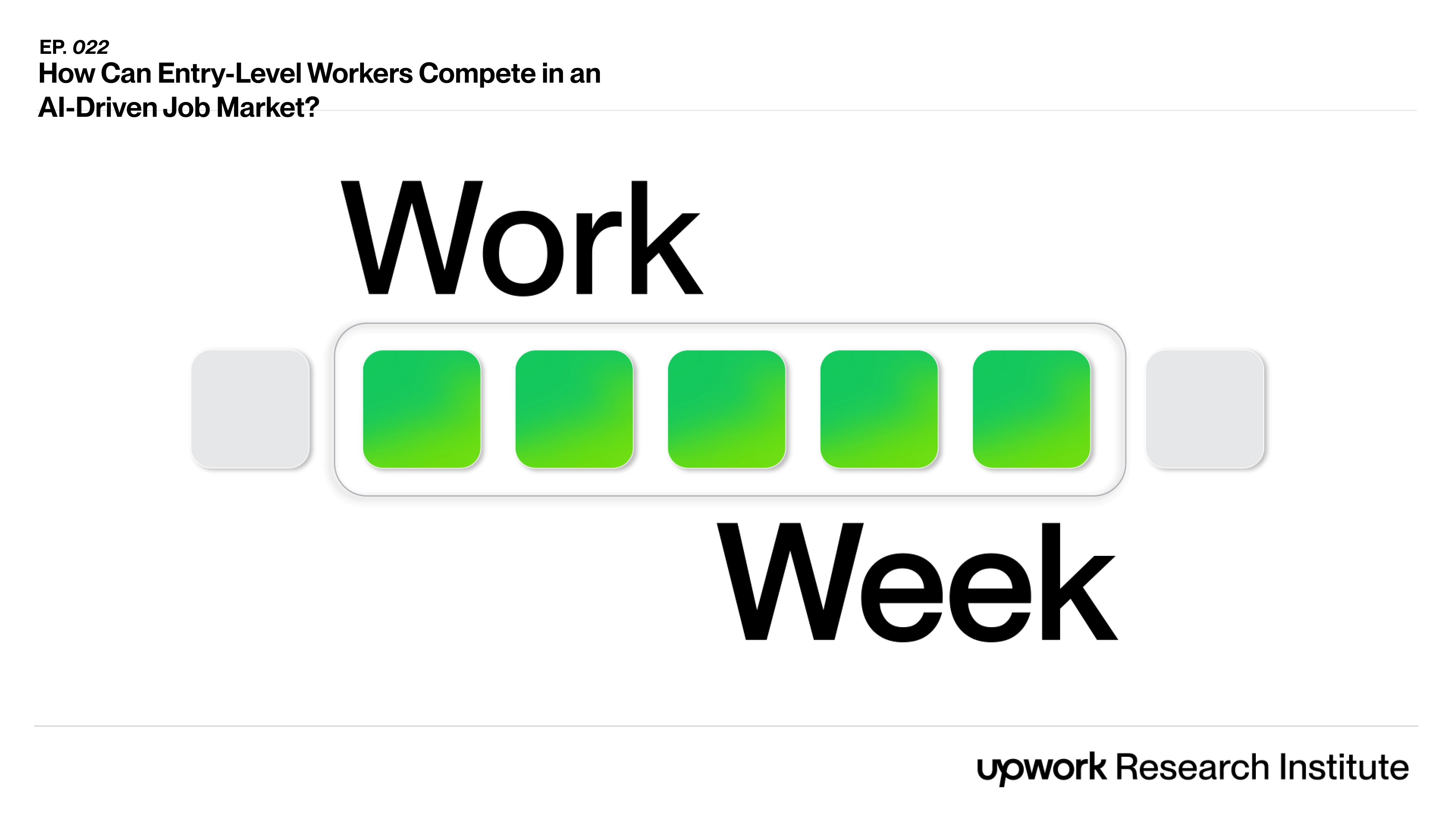


.png)

-p-500.jpg.png)

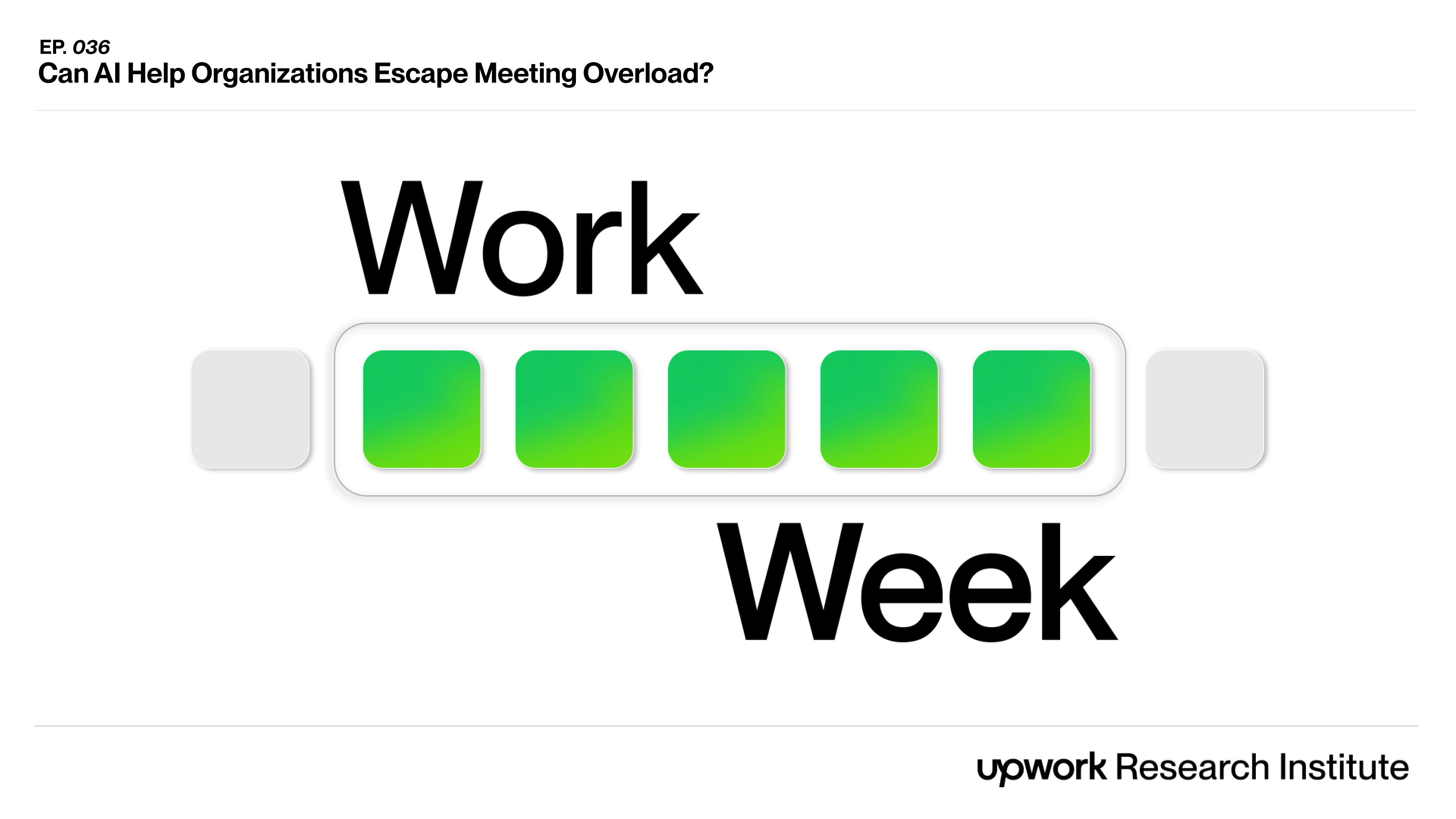

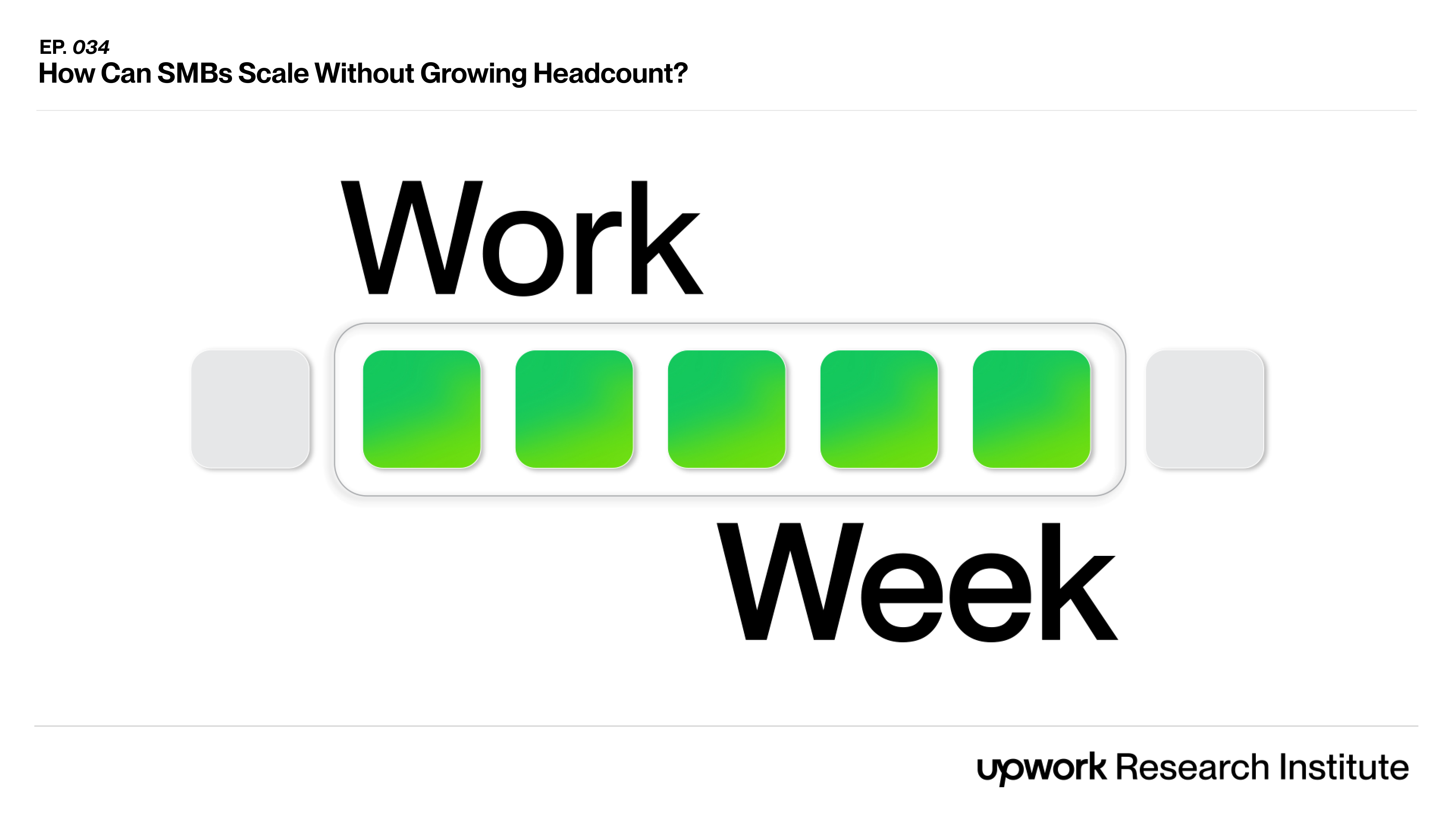
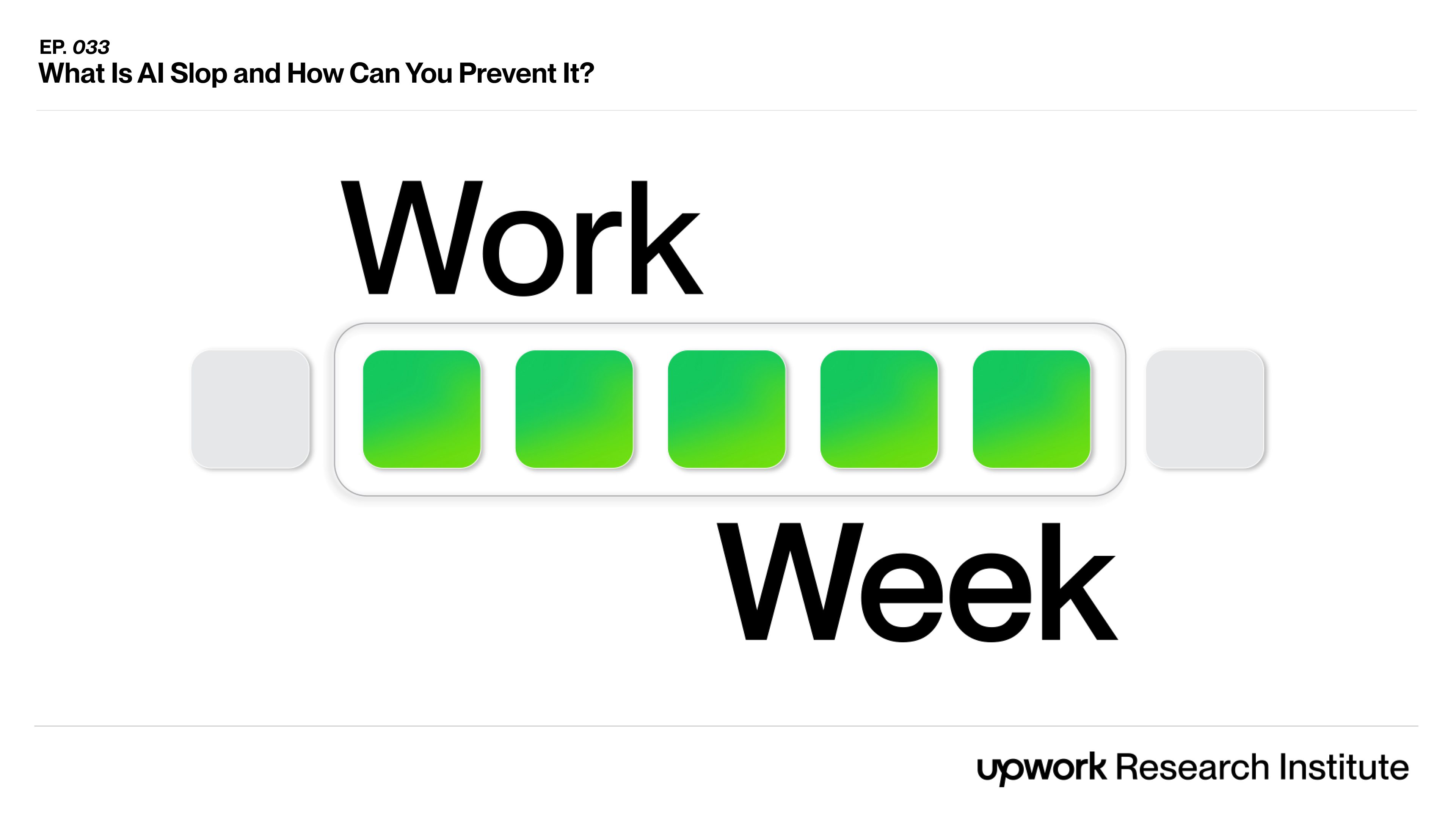
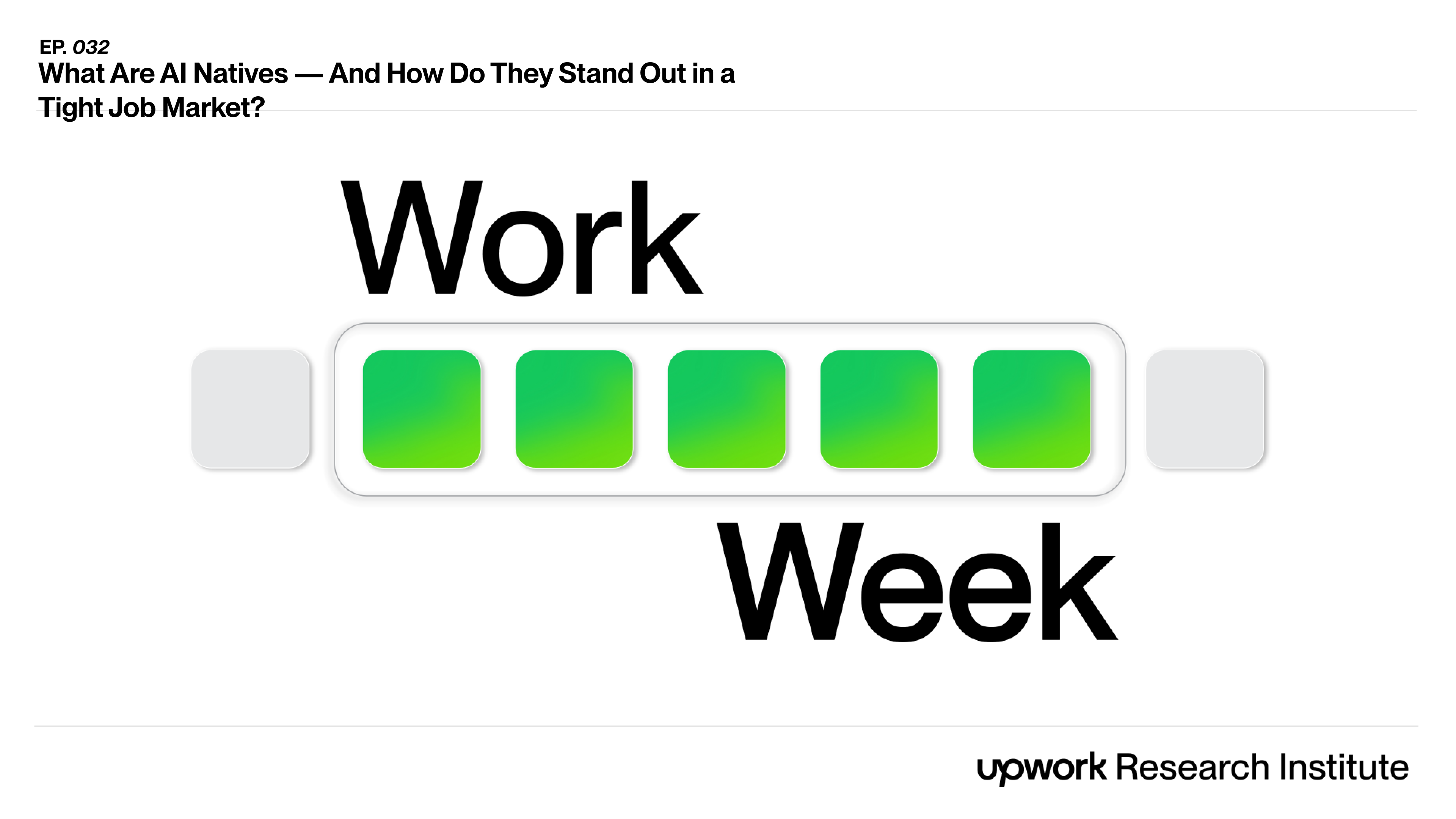
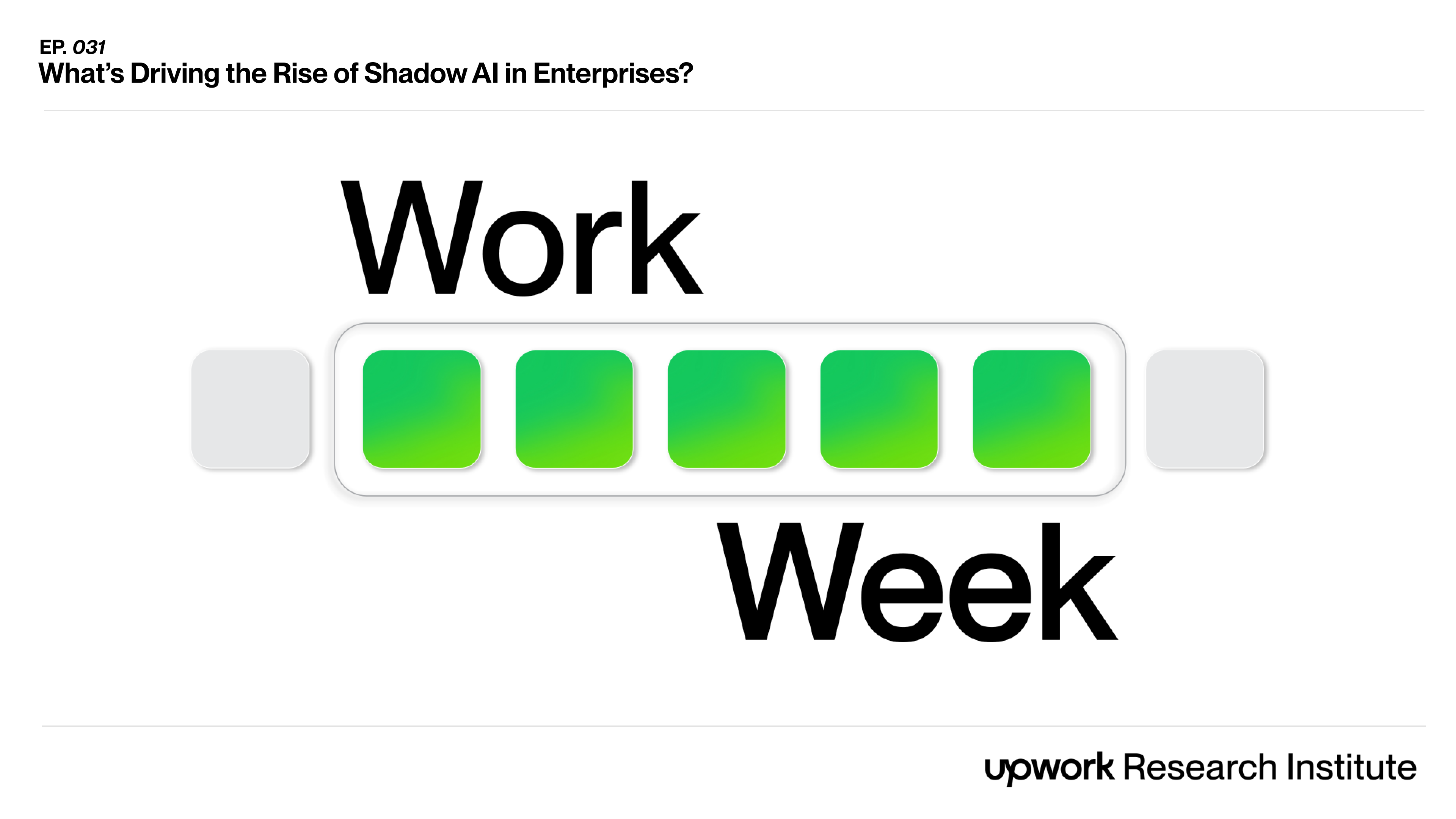
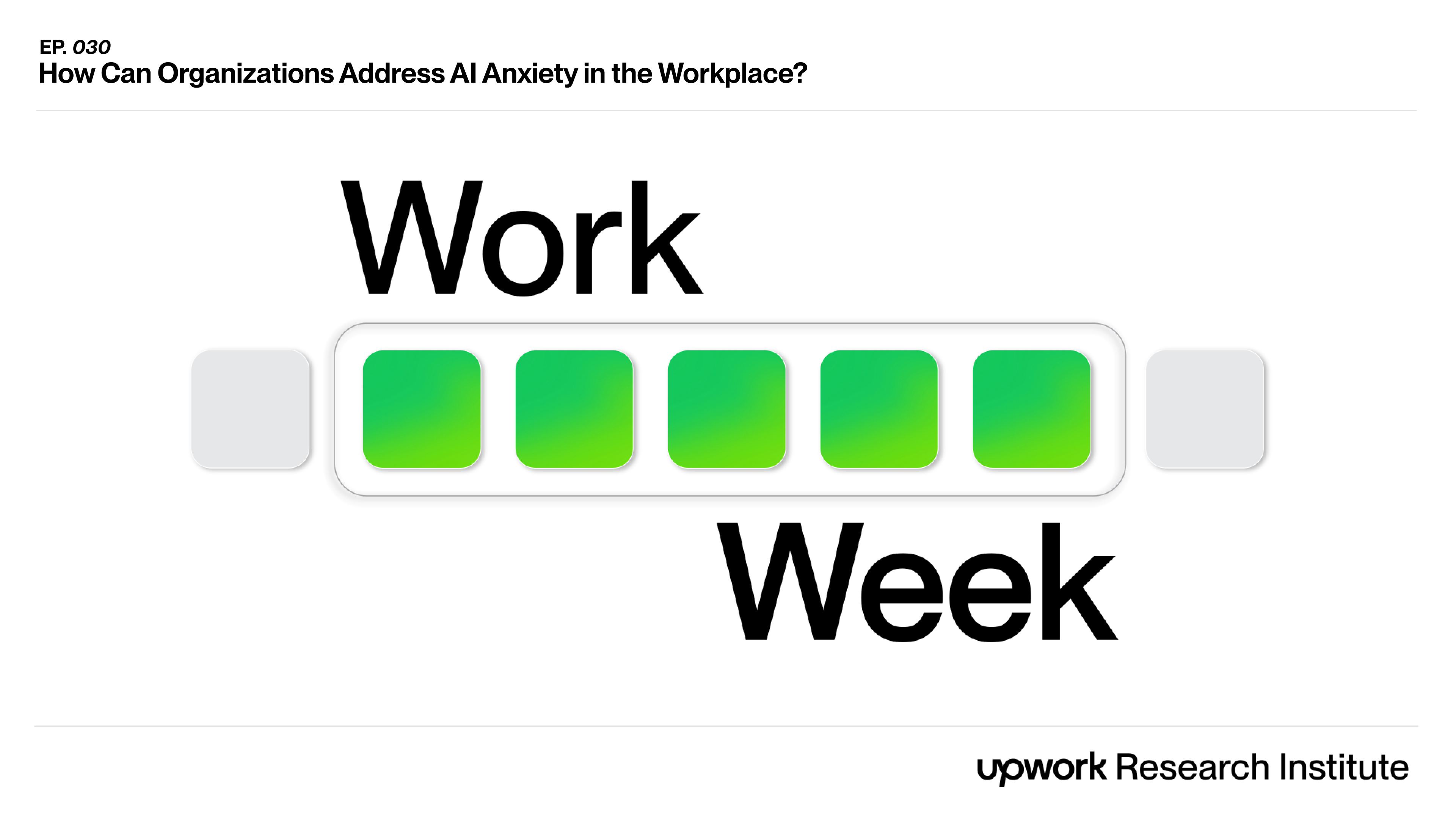
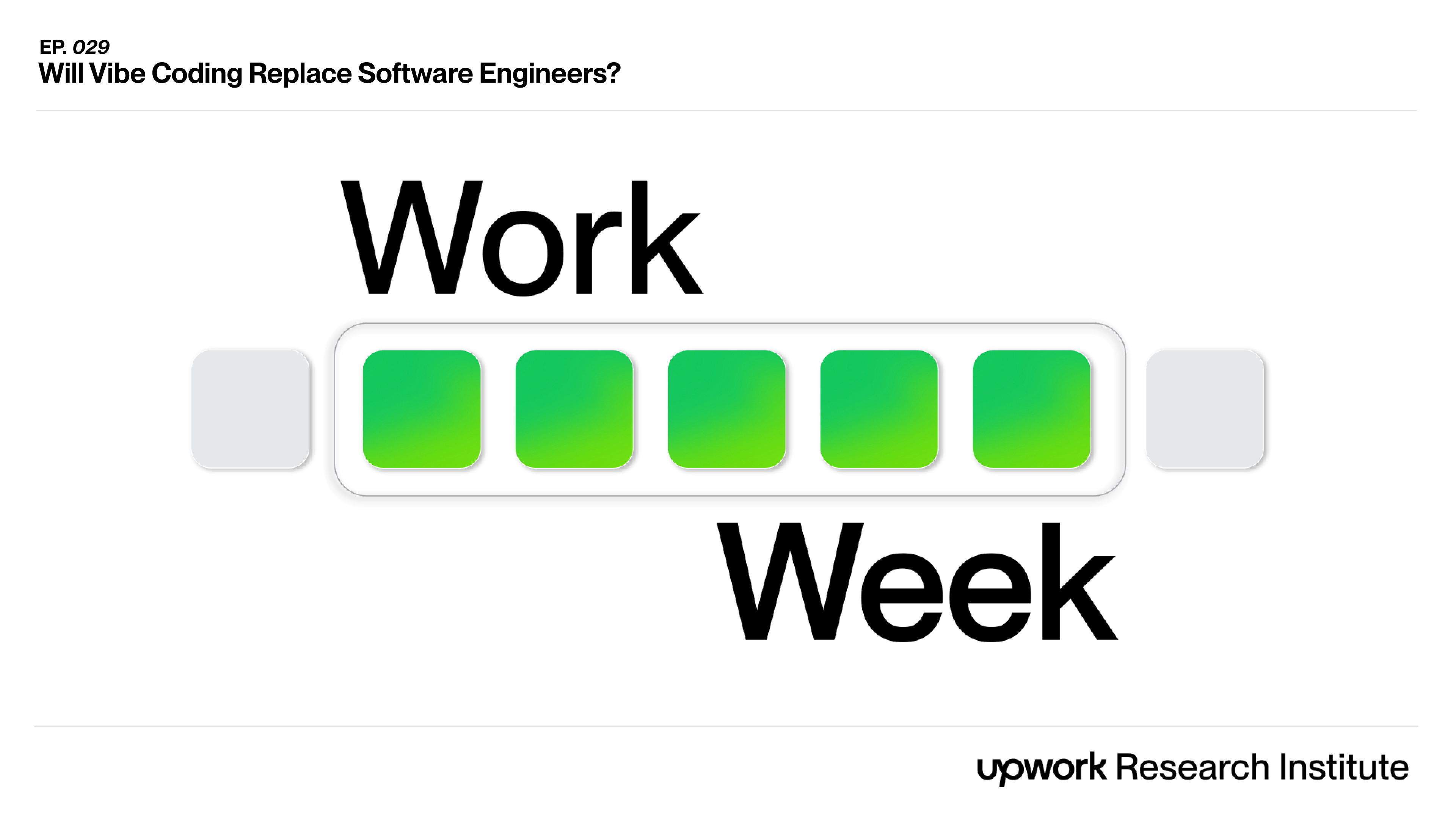
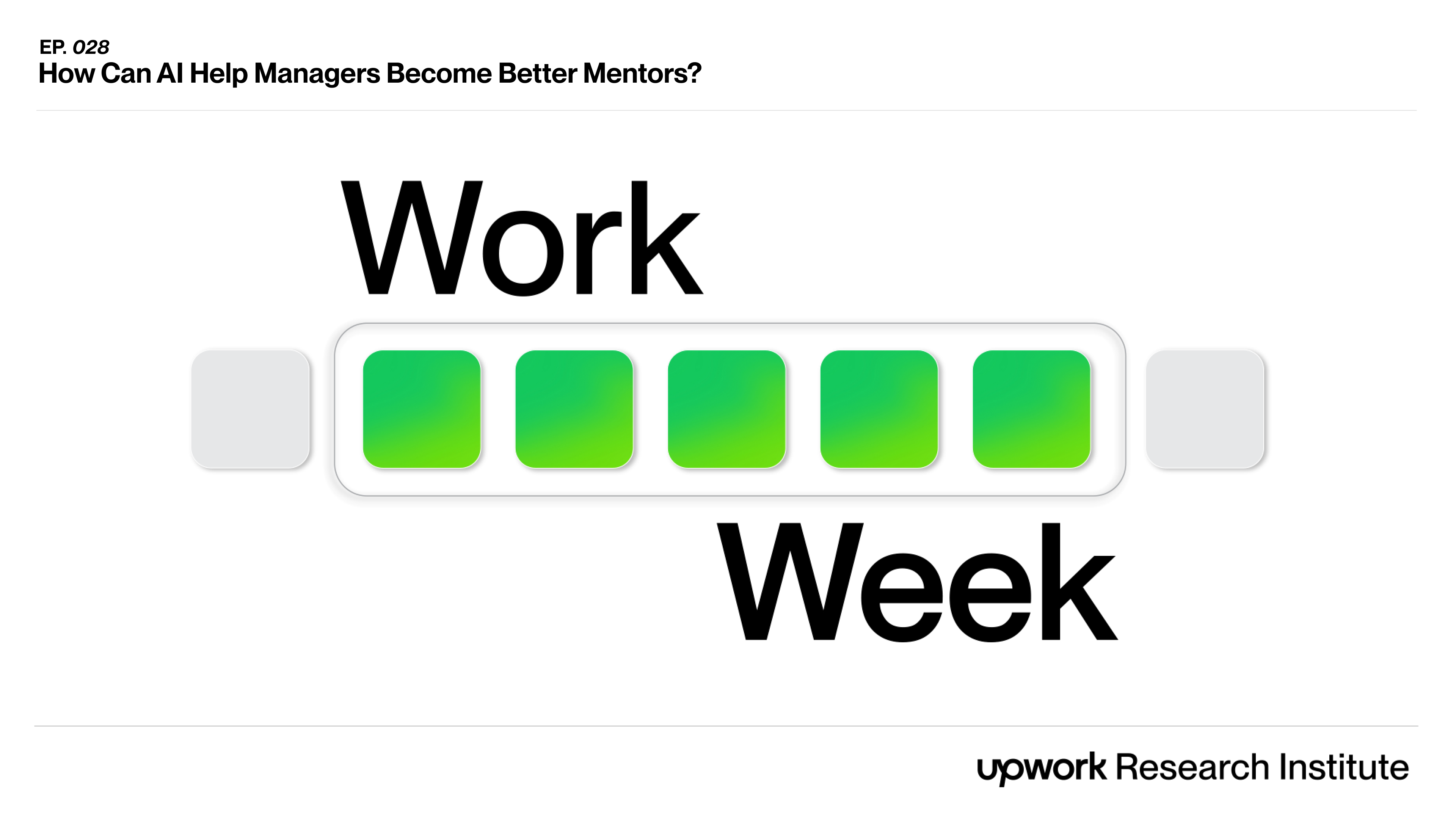

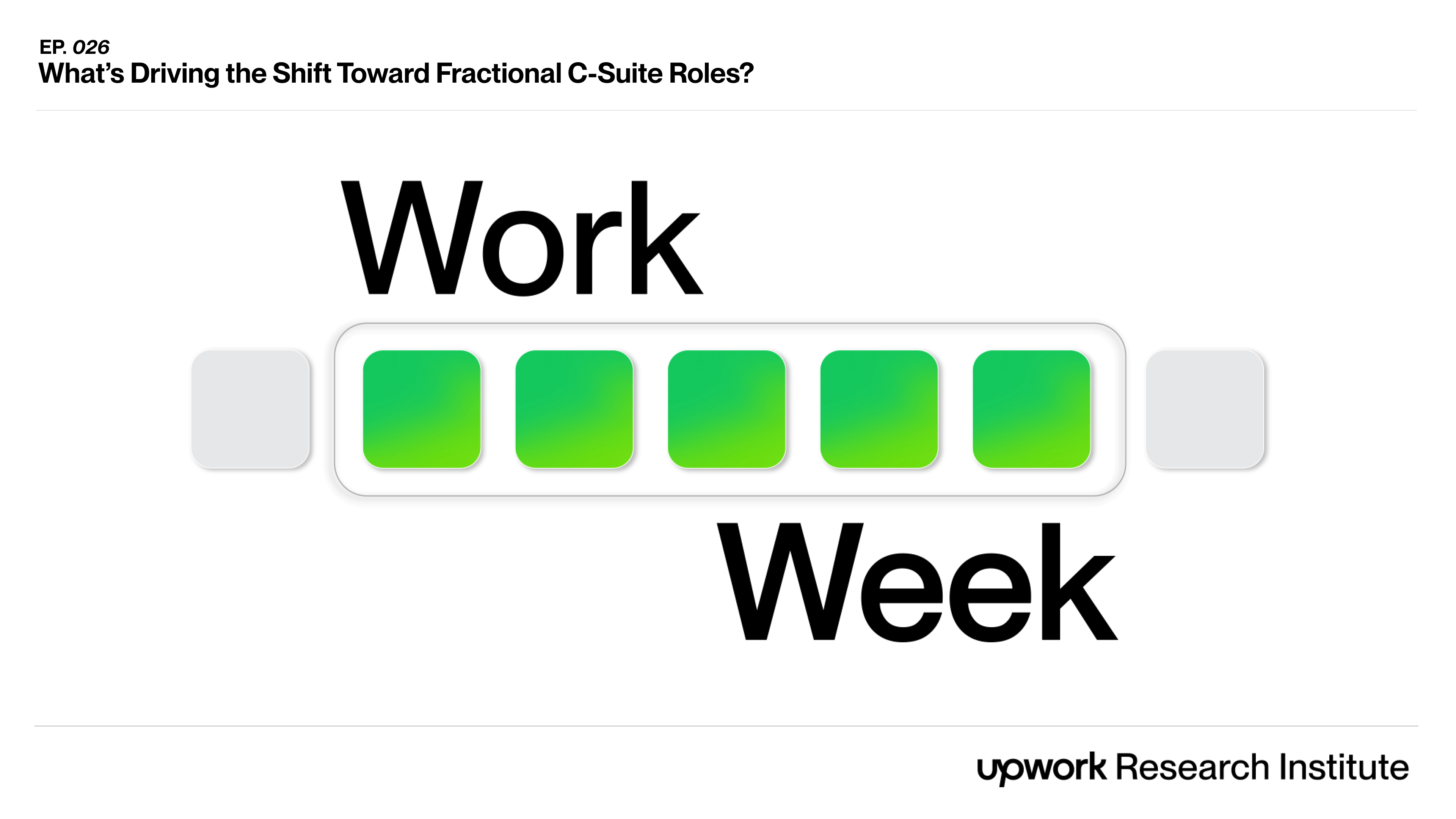
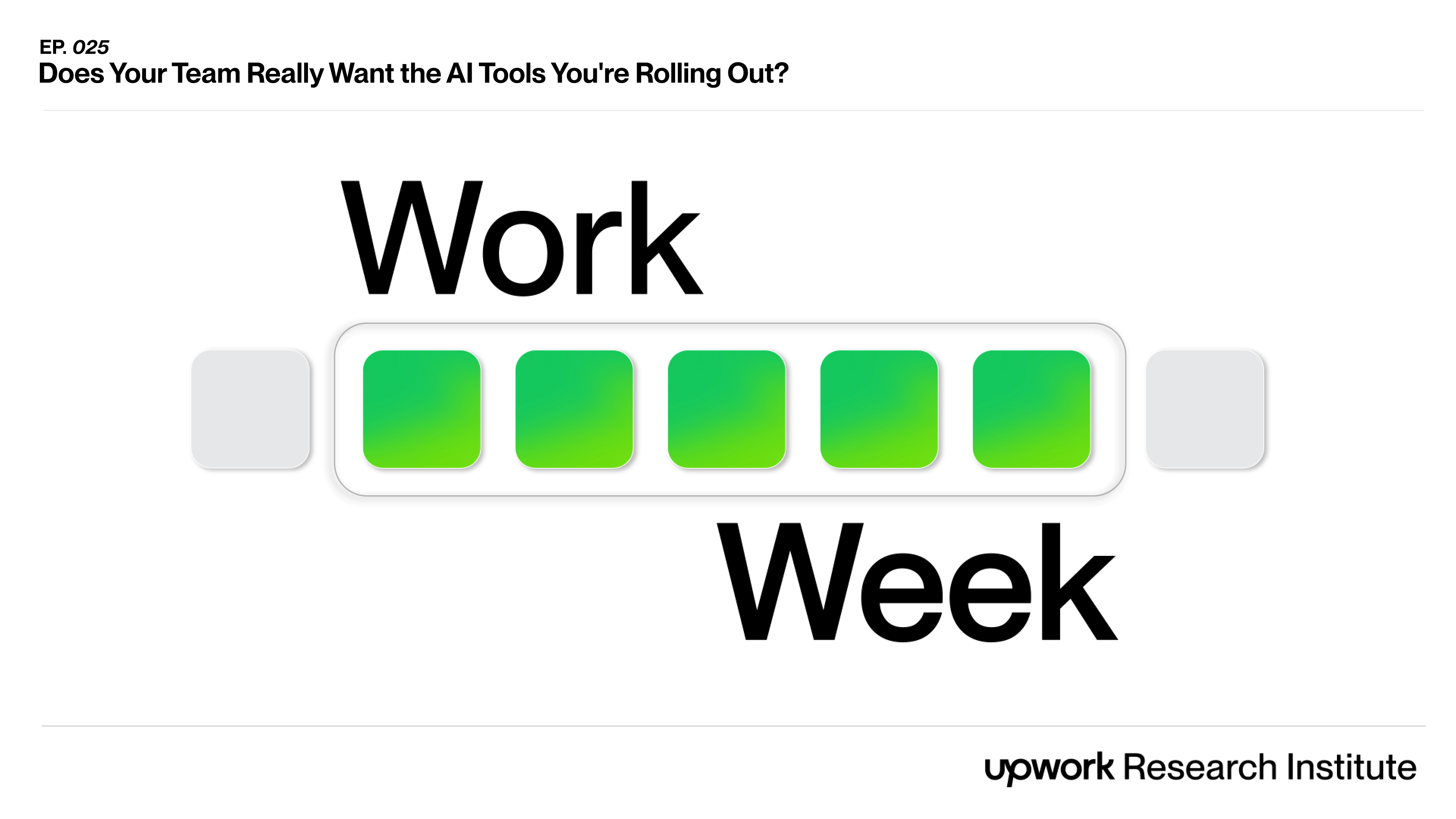
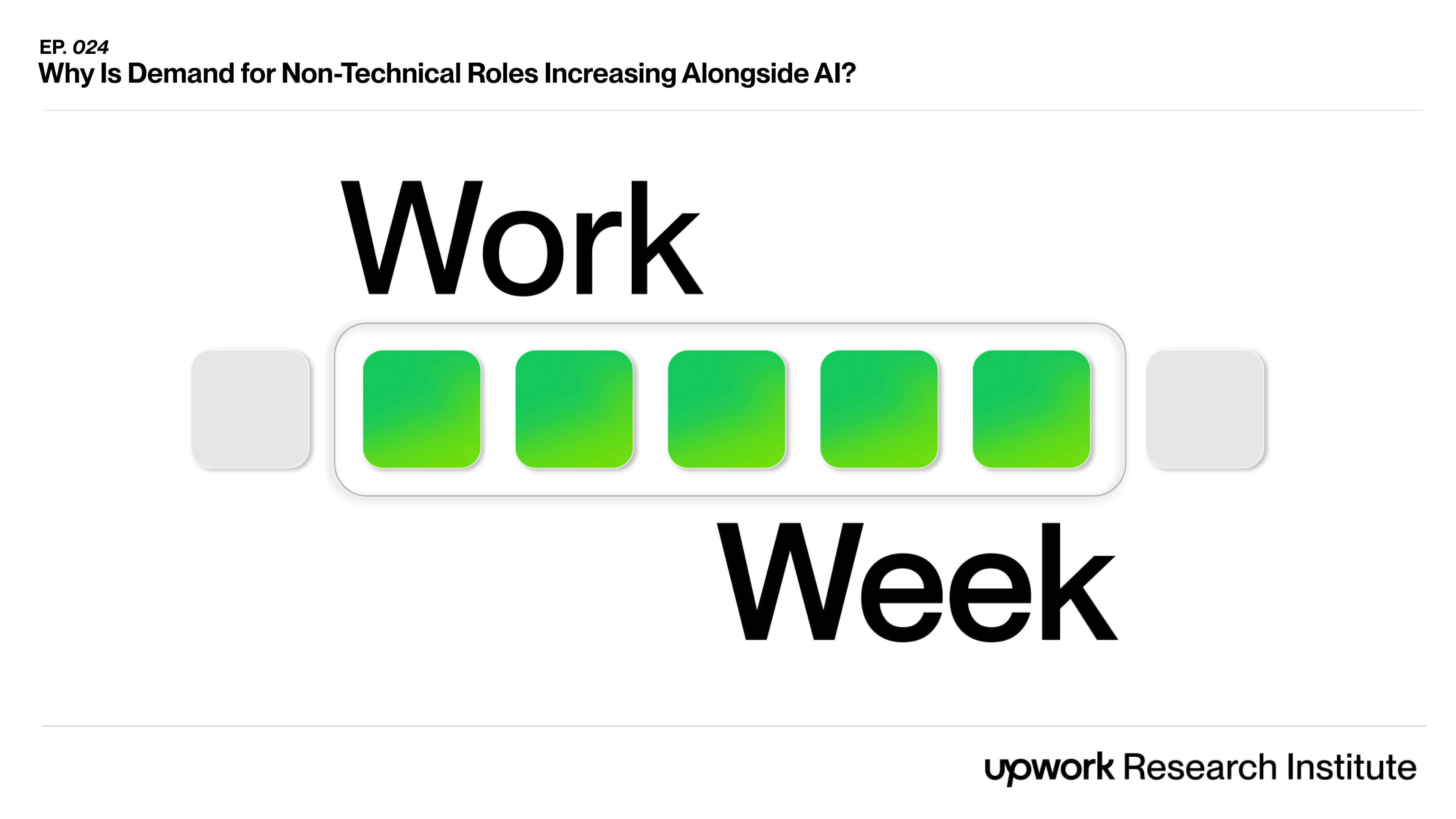
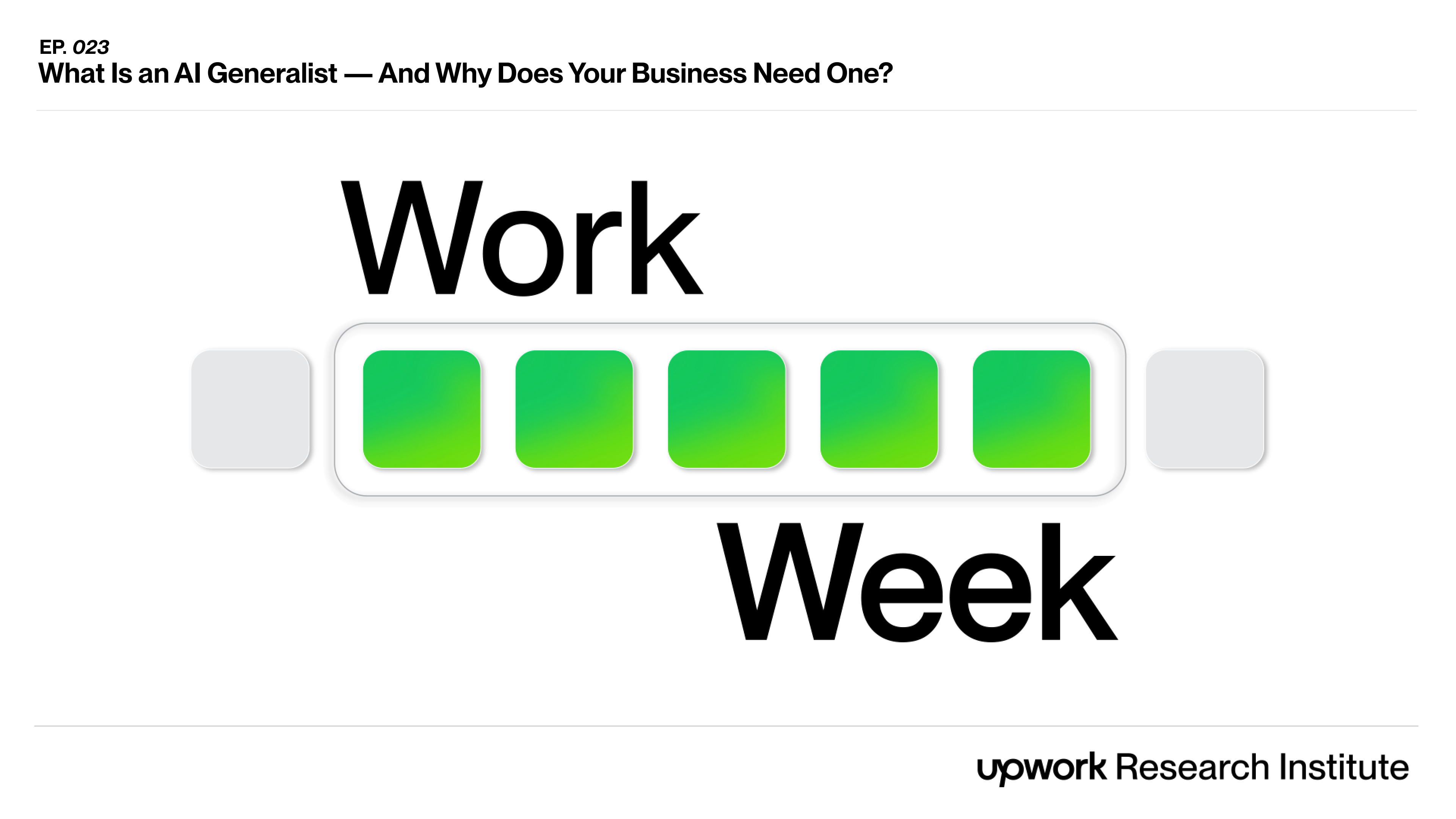

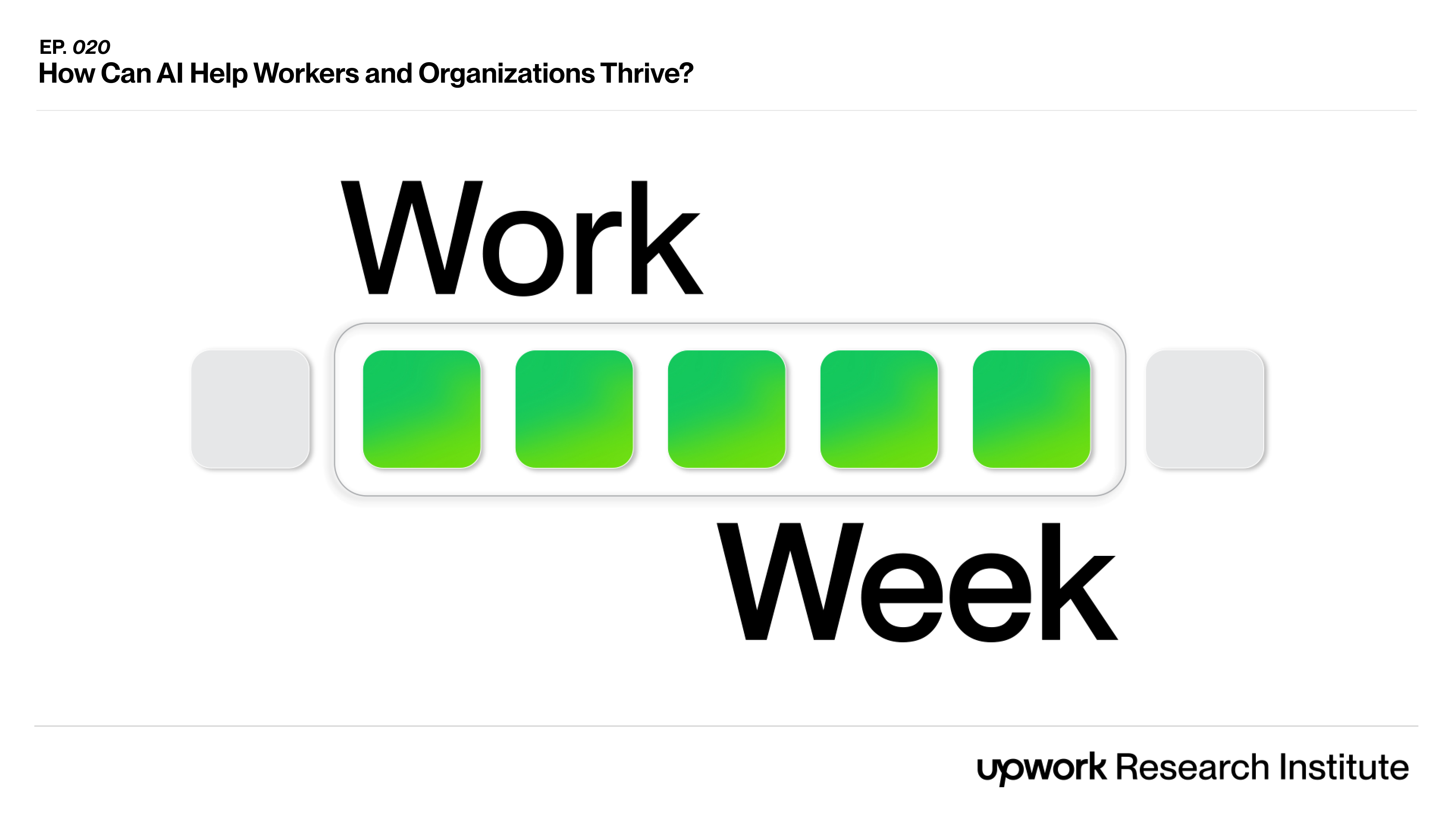
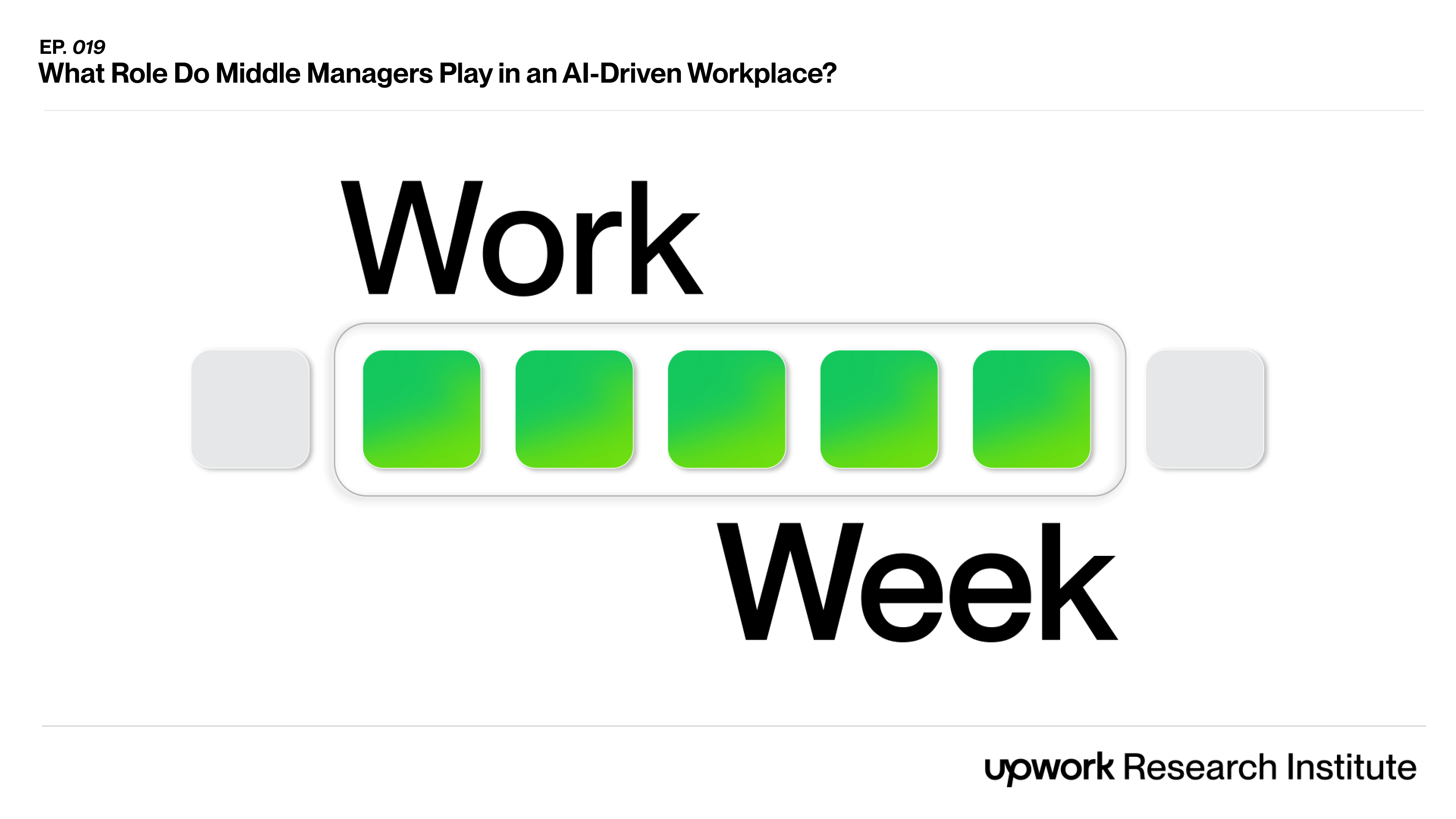
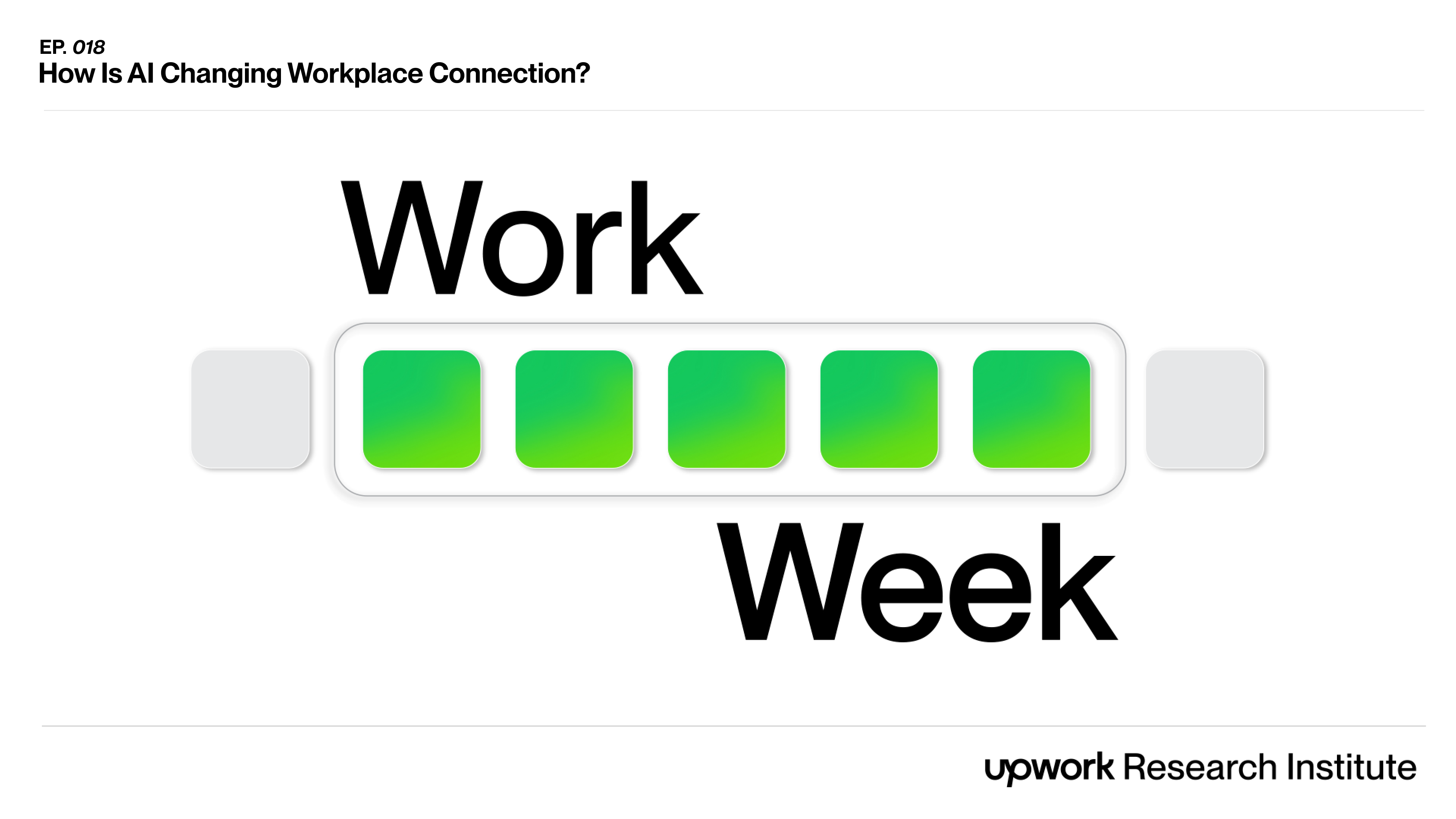

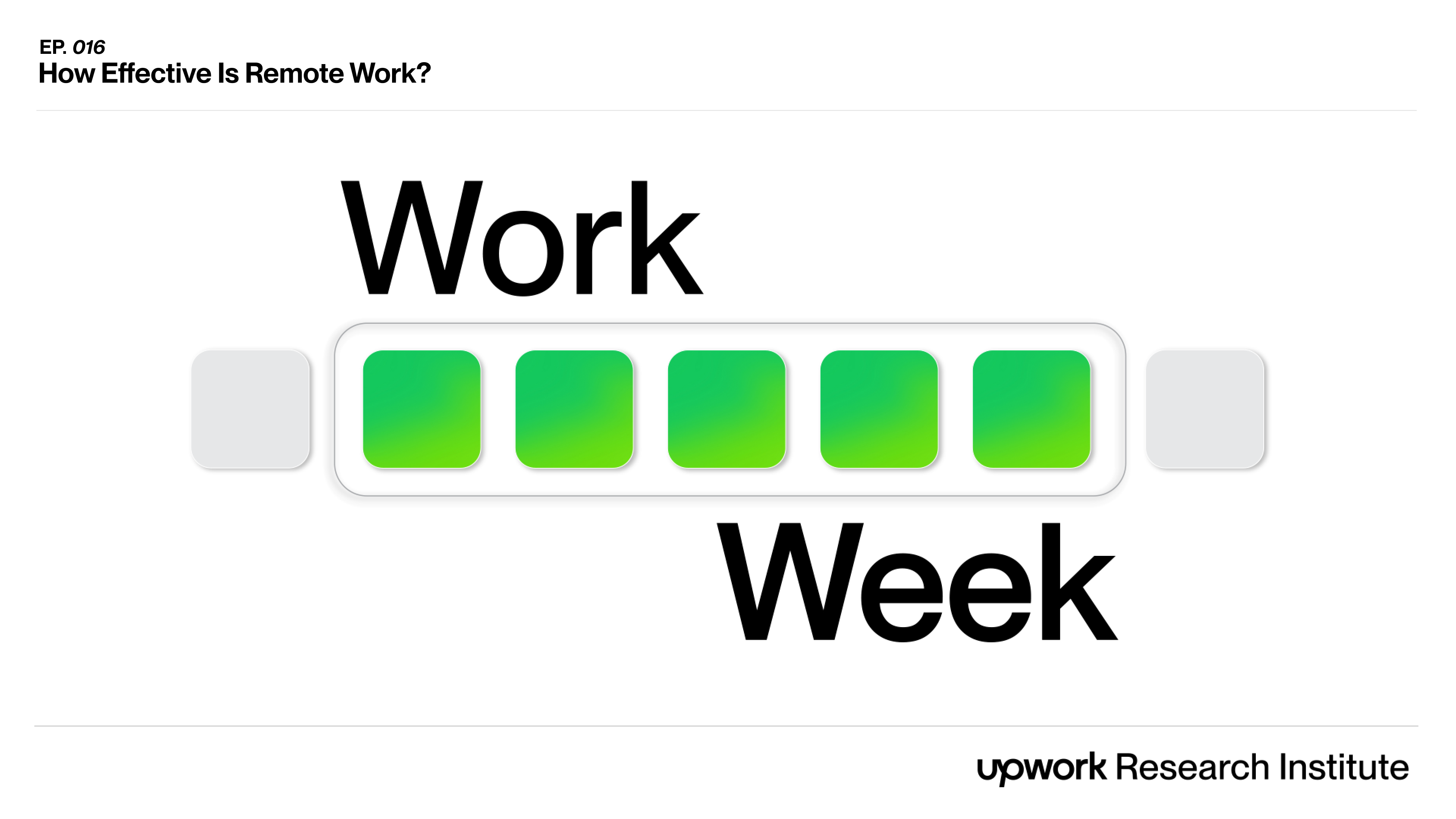
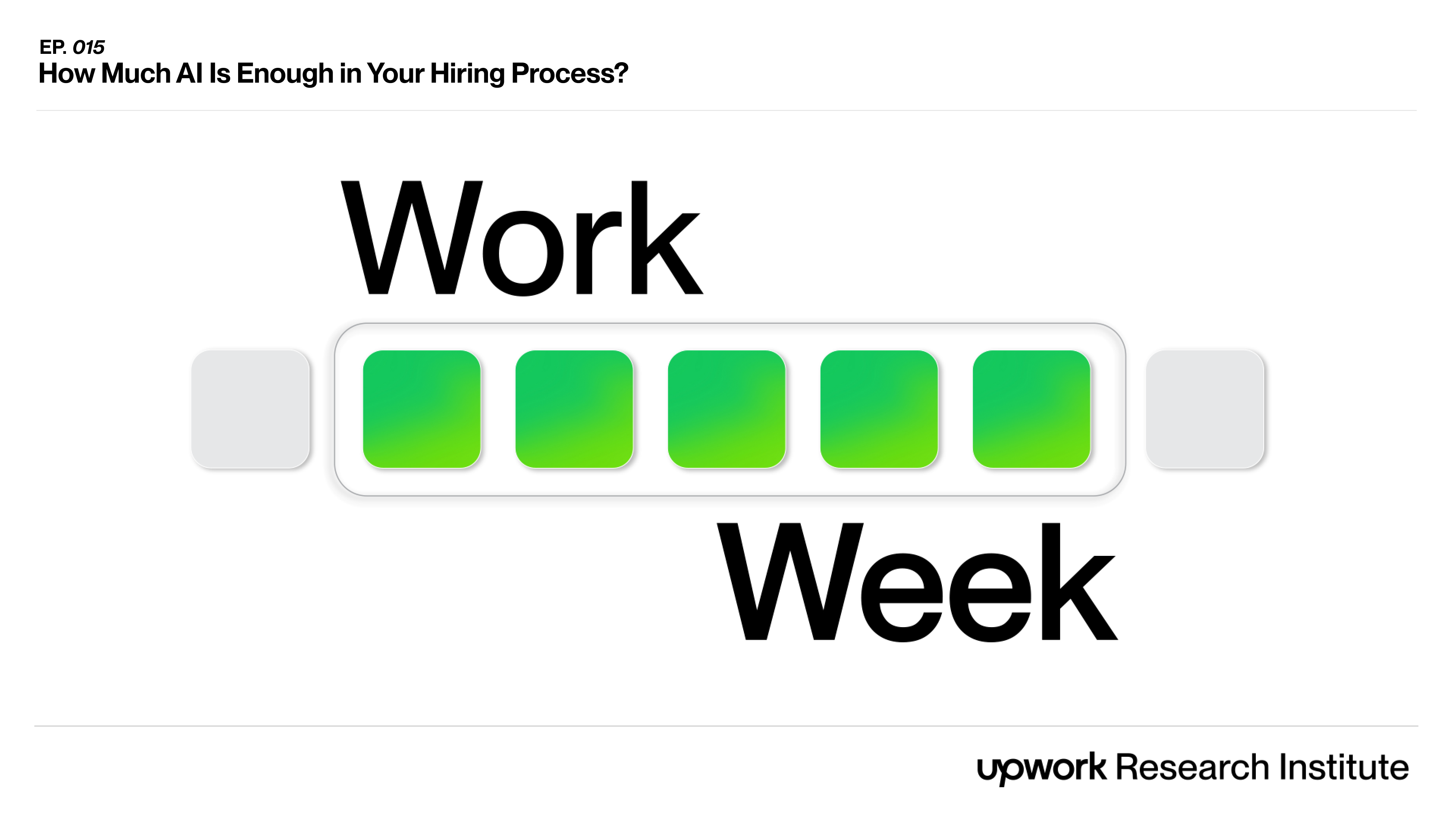

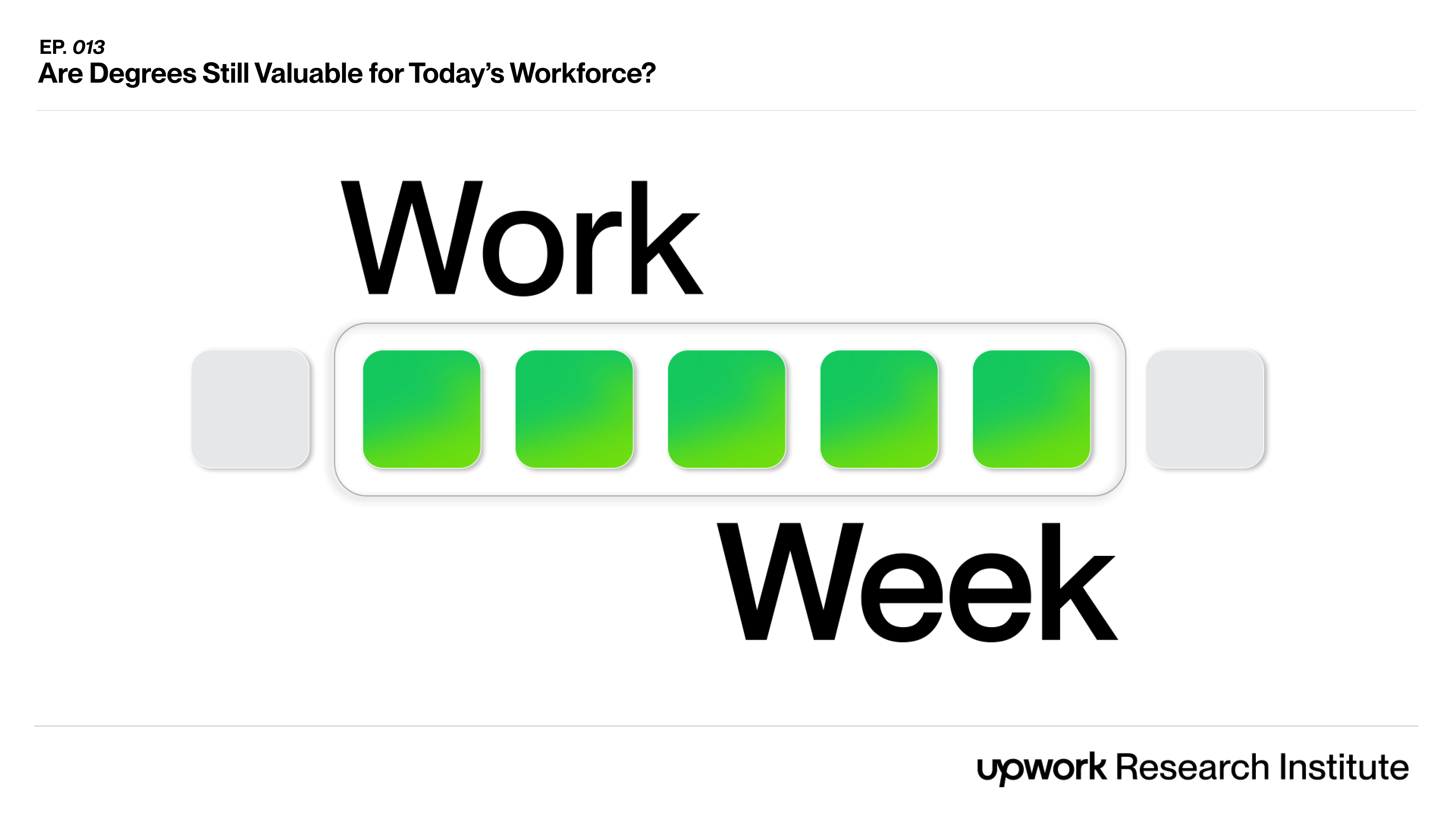
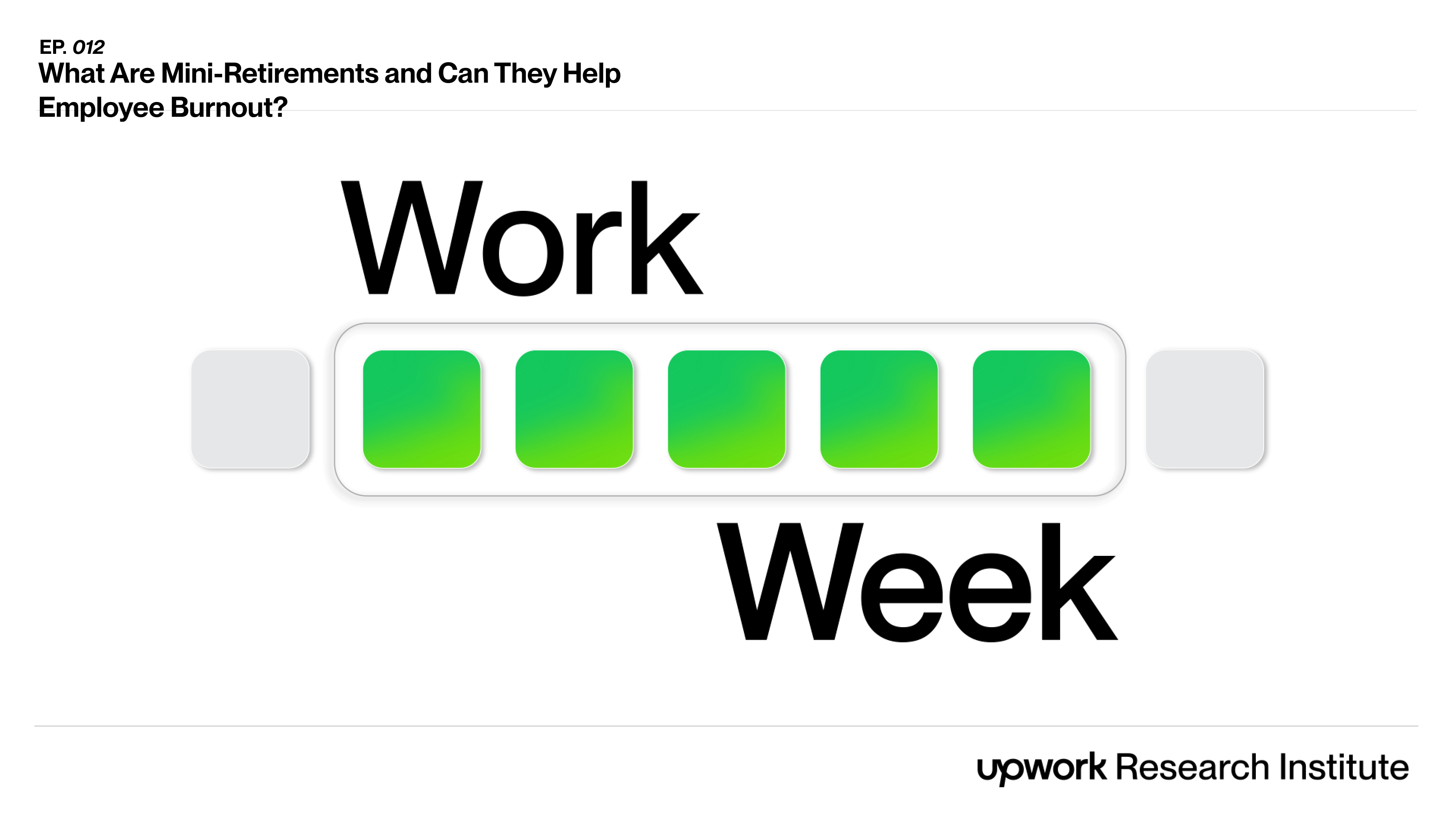
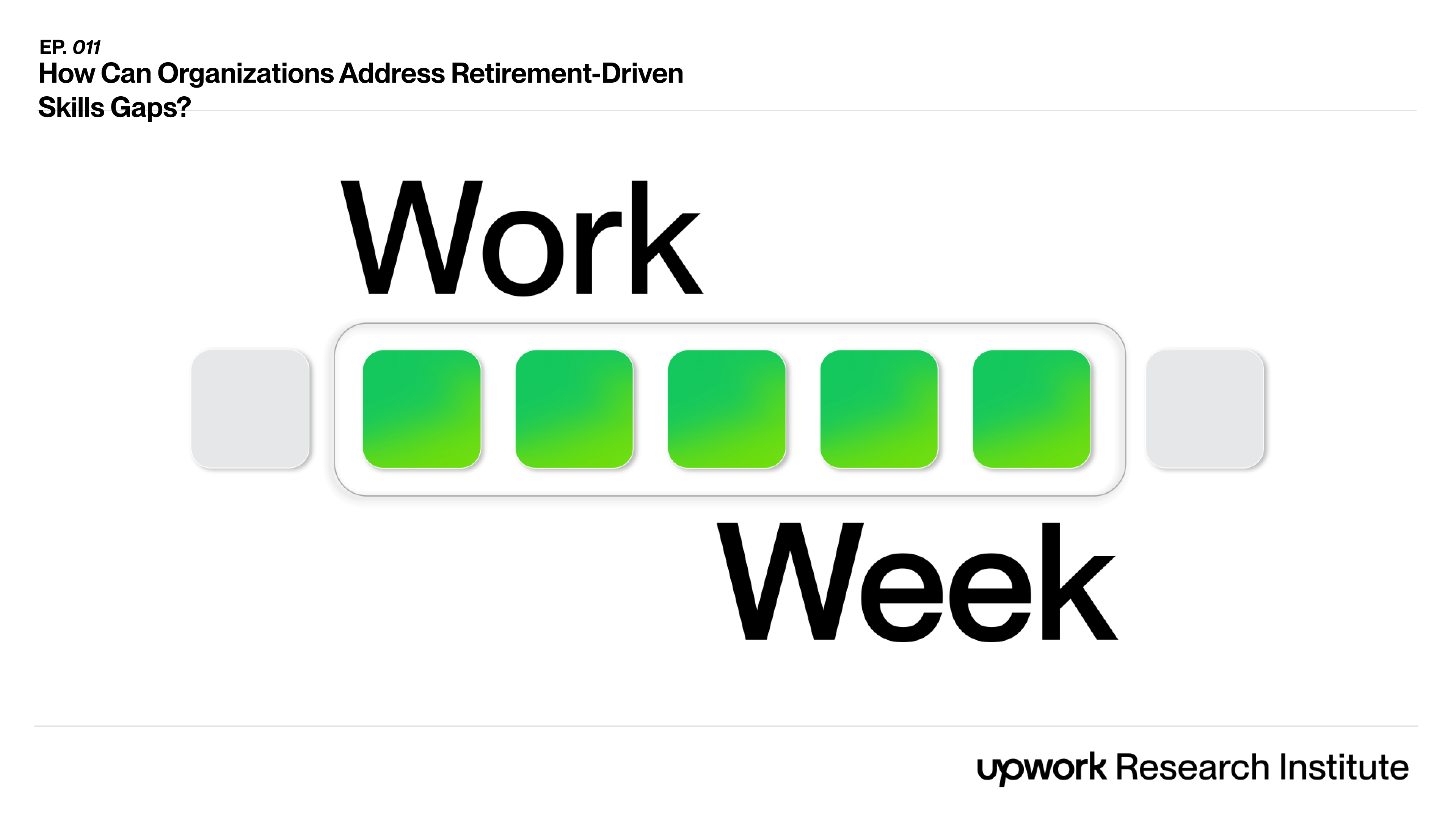
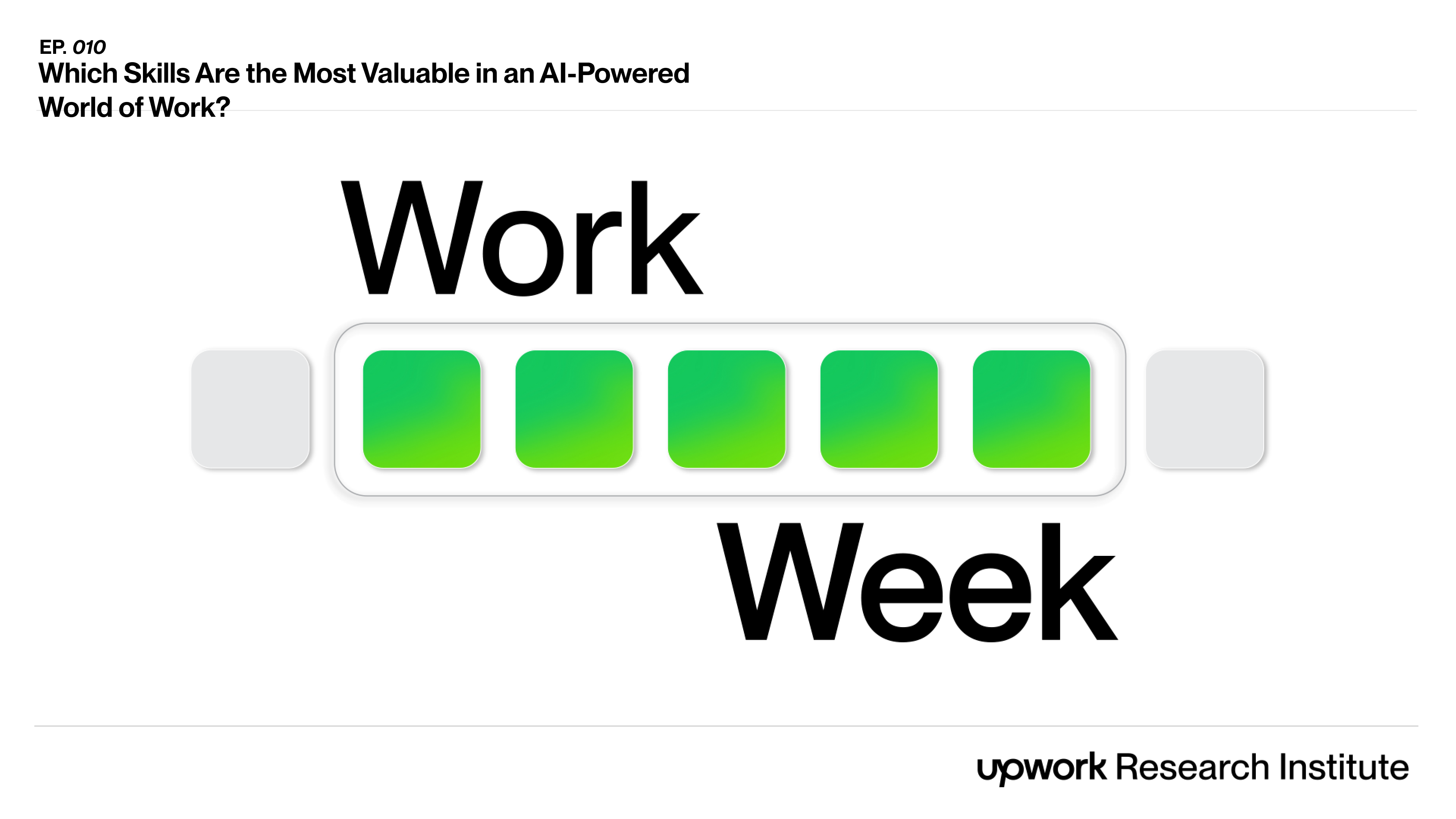
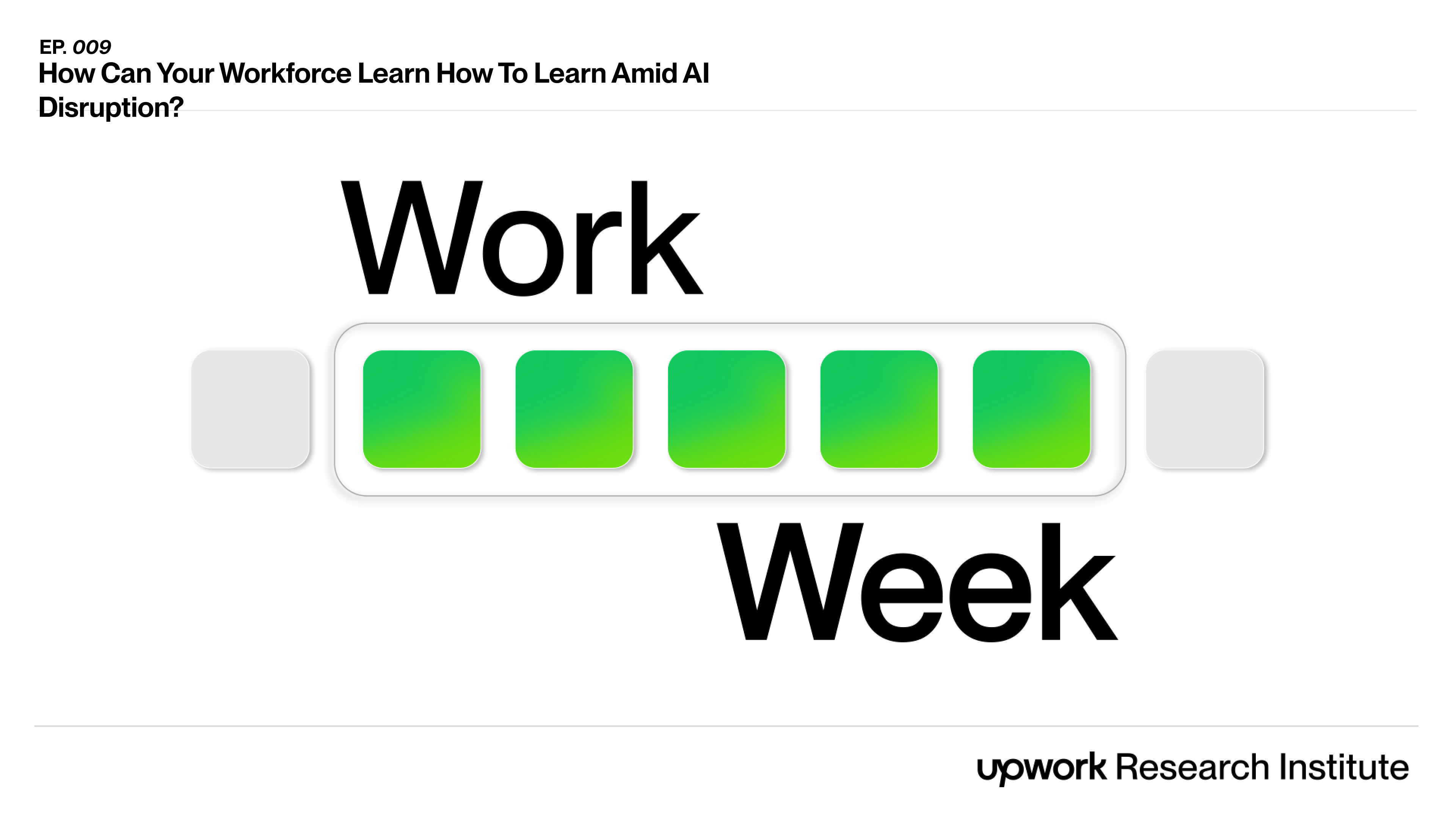
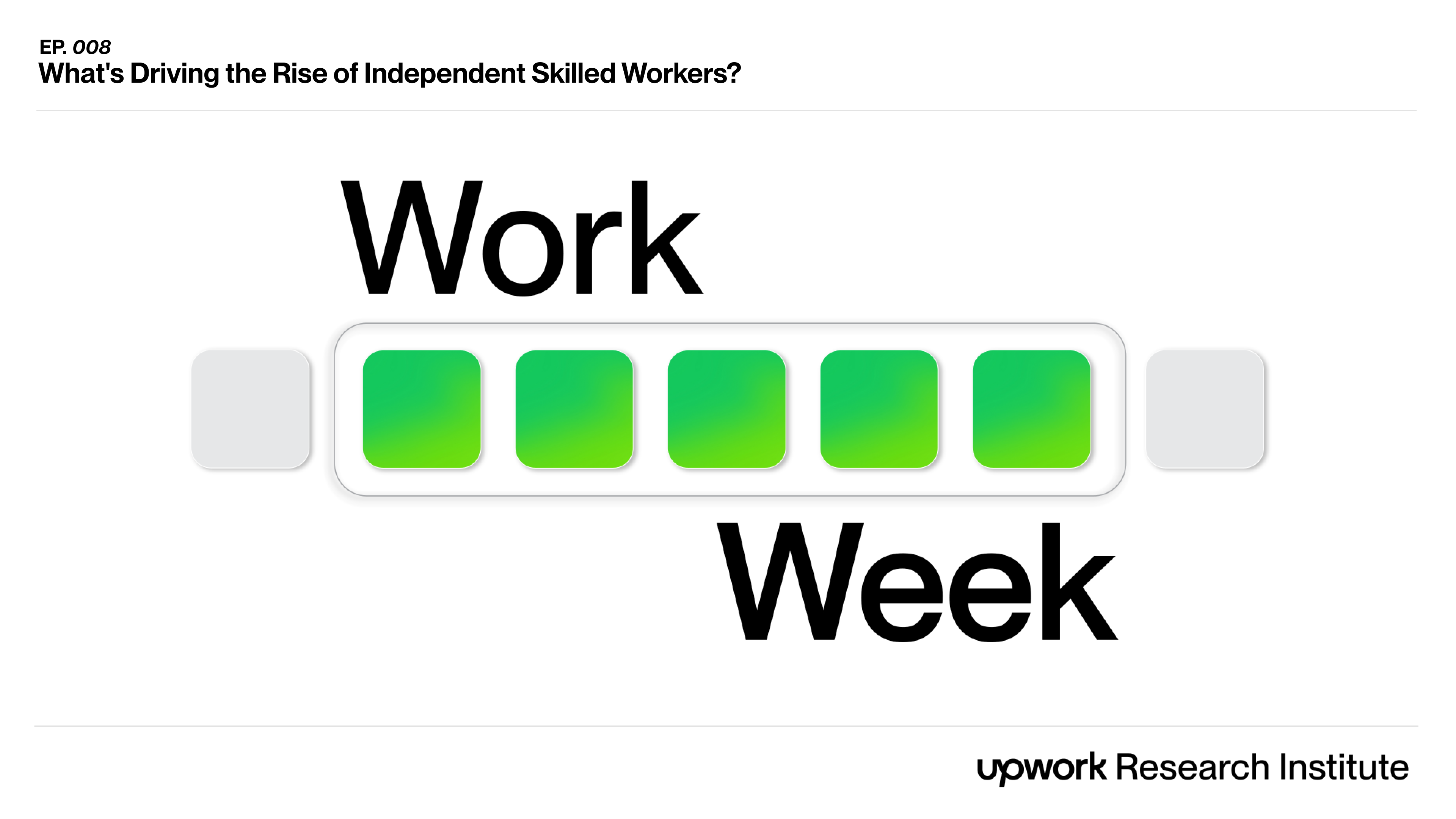
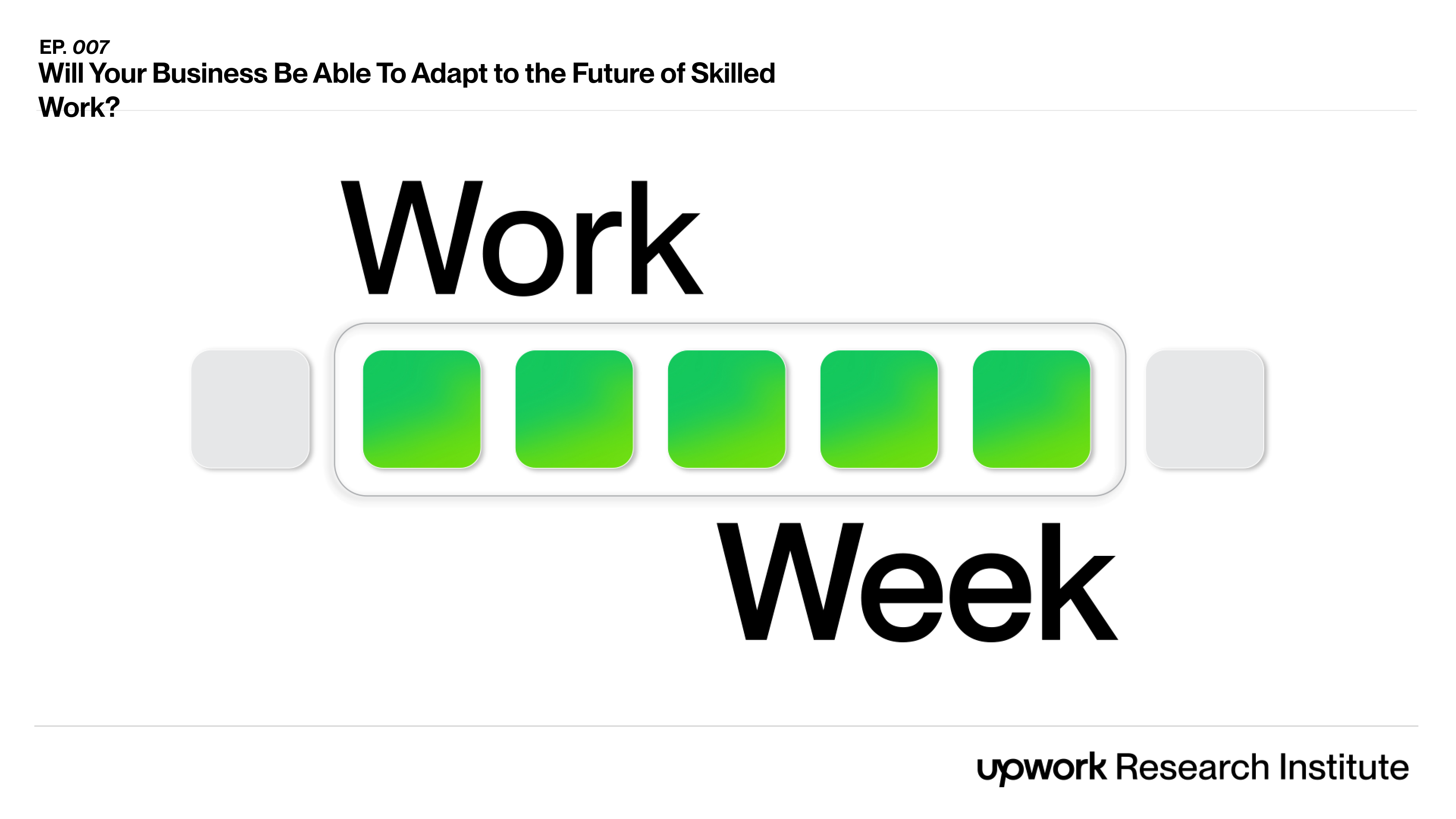
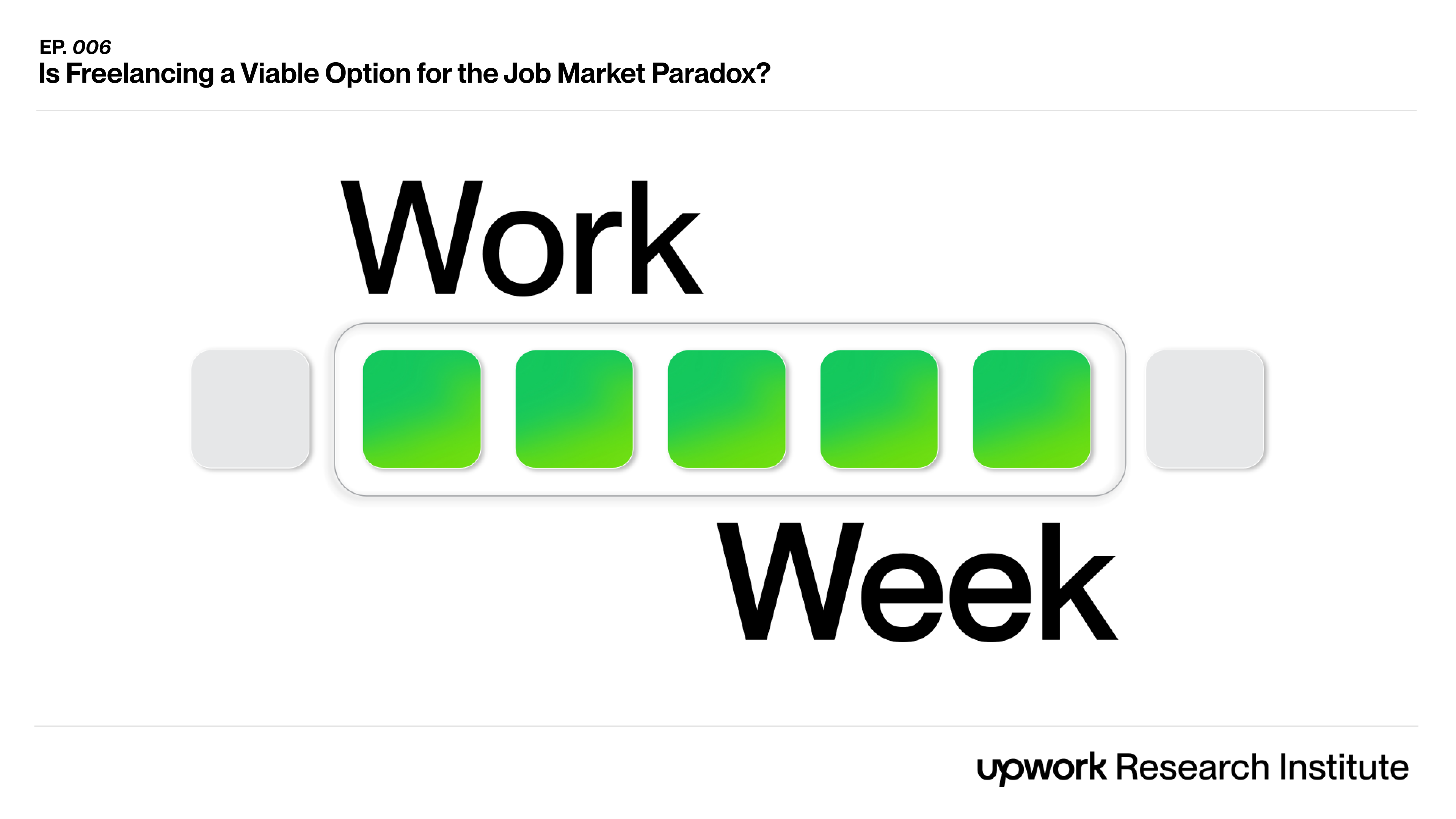
.png)
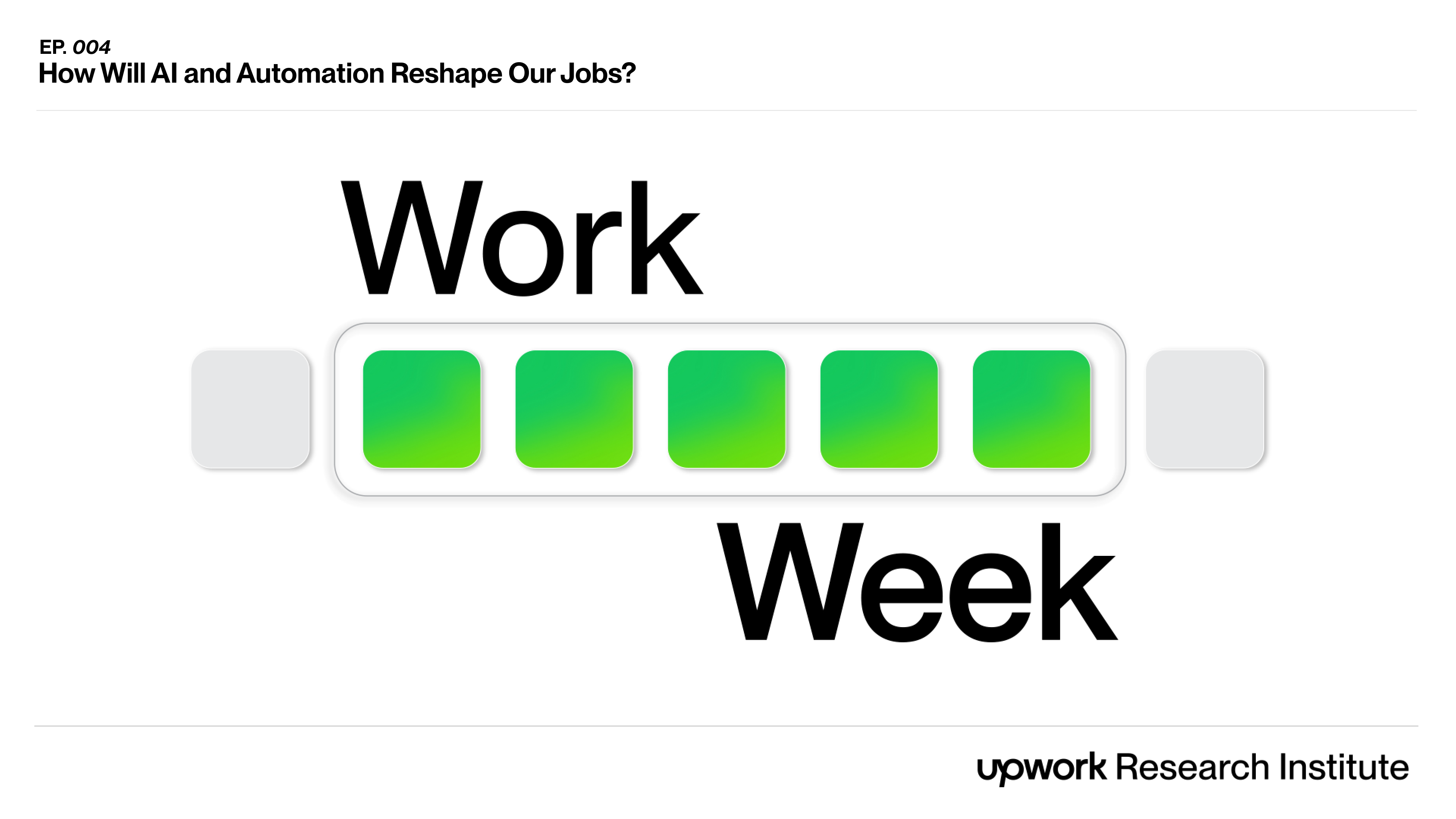

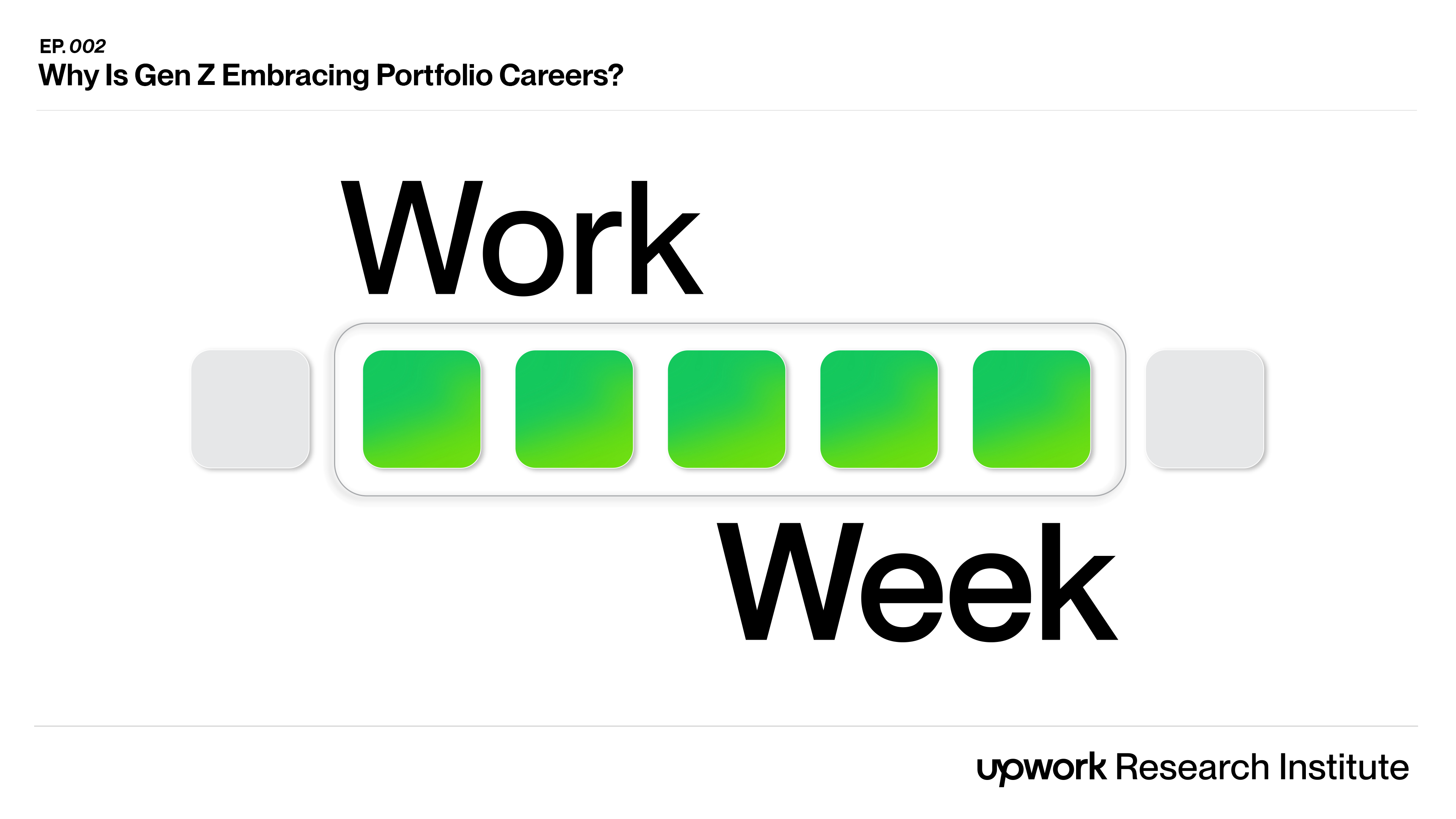
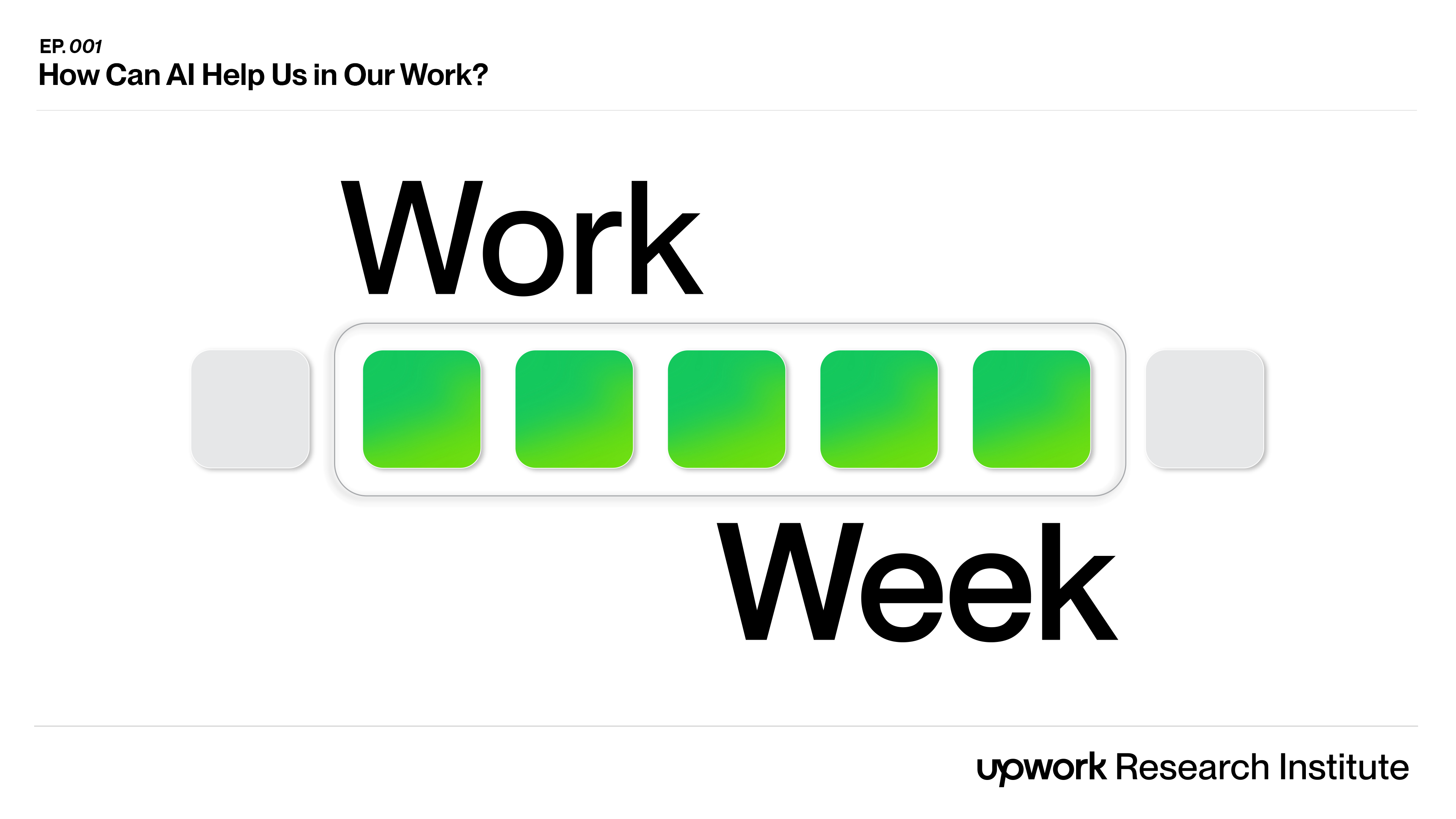
.jpg)